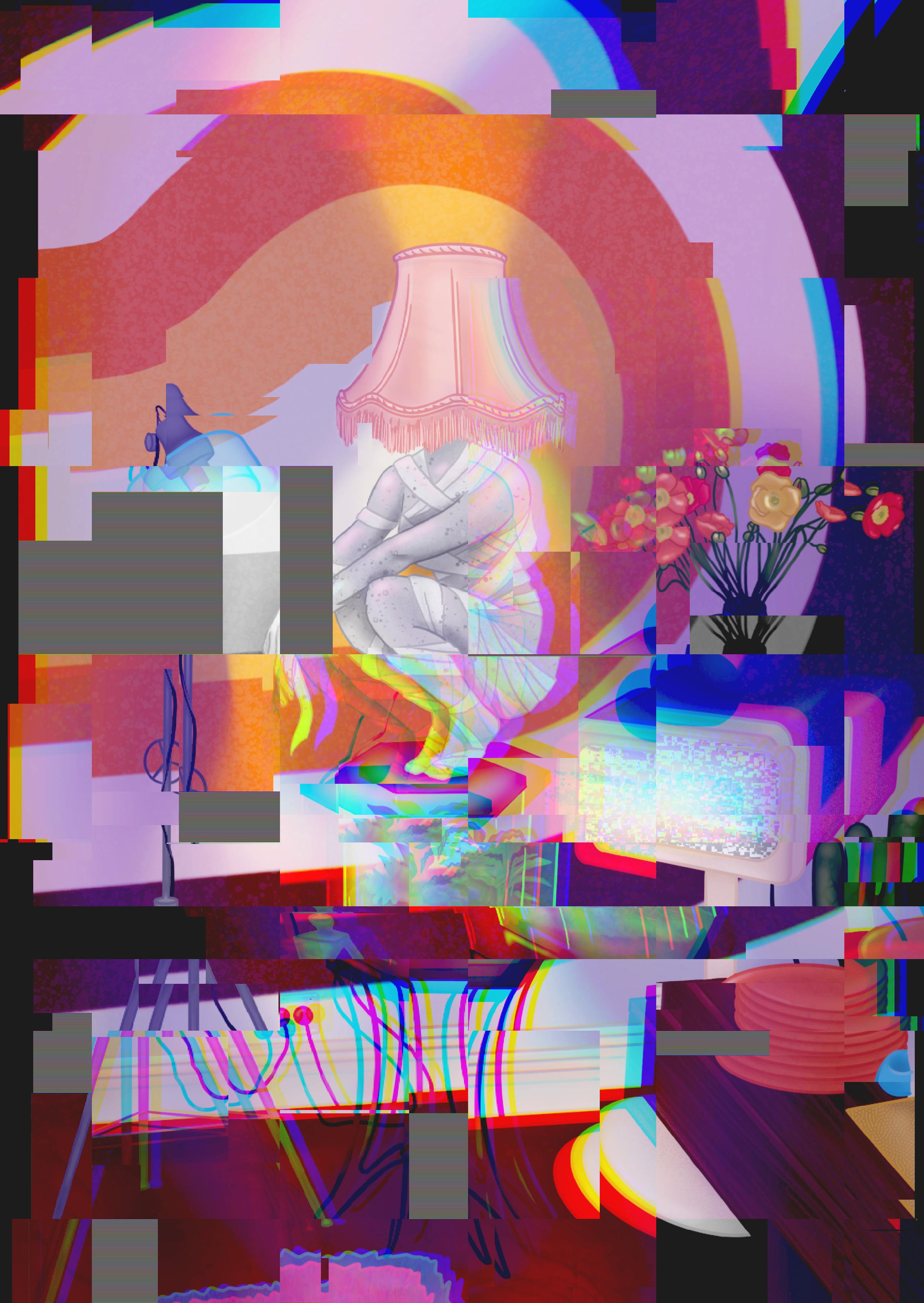




Editors
Kathers Anderson
Louise Jackson
Sebastian Andrew
Sienna Sulicich
Cover Art & Design
Sienna Sulicich
Art
Sienna Sulicich
Arantza Garcia
Lily Baxter
Emma Moffatt
Contributors and Sub-Editors
Alex Diduk
Annabel Fedcesin
Ariana Haghighi
Arantza Gracia
Asirah Abdul Kadir
Bethany Newhouse
Charlotte Whincup
Emma Moffatt
Emily Miller
George Young
Karim Hassan
Lily Baxter
Marlow Hurst
Olivia Veronese
Sabrina Donato
Simone Singh
Skye Xie
Talara McHugh
Venetia Rigoni
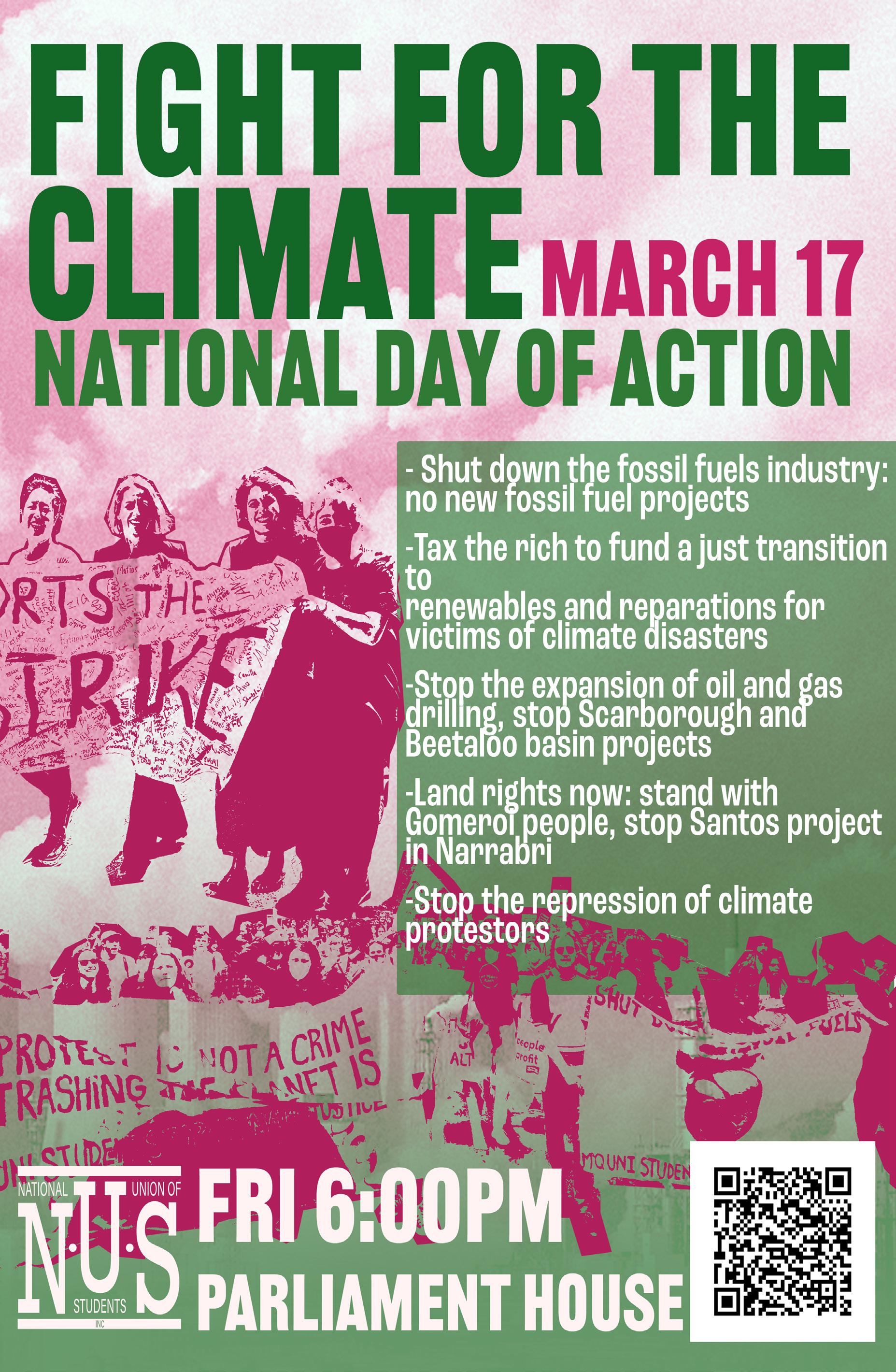
We want to acknowledge that the University of Adelaide’s On Dit is written and created upon Kaurna land. The Kaurna People are the traditional custodians of the Greater Adelaide Plains and their culture, knowledge, and spiritual connections continue to run deeply within this Country. We acknowledge that the University of Adelaide is a place of learning attended by First Nations People from around the continent and, like Kaurna, their land and sovereignty was never ceded. We pay our deepest respects to the Elders of the past, present, and emerging.



Hi beautiful people, we missed you! Welcome to the first issue of 2023: brought to you by your new editing team.
Truth be told, I don’t know how I ended up here. I guess I was dragged by the hair, judging by the clumps on my pillow. After all, I couldn’t possibly have signed up to do all this work for less than minimum wage... Fortunately for me, three other idiots made the same mistake: at least if we burn-out, we will burn-out together.
On Dit has been beautiful. It has been political. It has been impactful, hilarious, brave. I want to continue this legacy with all of my little frail heart (probably with less agility, and more pazzazz if possible). Past issues of On Dit have always inspired me, and I hope this year’s will inspire you too.
I’ve got to be honest: I haven’t done a lot of graphic design in the past. After being a part of the On Dit team last year, I was pushed to give it a go. It’s been a painful learning experience, but it’s also warmed my juices and reinvigorated my creative jellies. Thank you to everyone who pushed me. May you reap the reward of my (hopefully) delicious gelatinous gummies.

Over the past couple months I’ve been crouched over my laptop, pulling my eyelashes out trying to figure this all out. Very painful, very worth it. Very bald now. I still only want one thing - for On Dit to be beautiful. I want these little drawings and graphics to be pasted in your notebooks or on your walls, as I used to do with my old magazines. I hope these words and these pages do as much for you as creating them has done for me.
The gang and I only aspire for you to love this issue as much as we do. Please feel free to get involved in the magazine and join our motley crew.
Thank you to all the girls, gays, hes, shes, and theys that made this possible.

A warm welcome to all the new students who are about to commence their first year of studies at the University of Adelaide. To those of you returning from holidays, I hope you are rested and ready to embark on another exciting year of learning and engagement within the prestigious surroundings of The University of Adelaide.
It is a great honour for me to represent you all as the 2023 YouX President. YouX is a student-led organisation aimed at heightening your student experience. This is achieved through the provision of several services such as Student Care, Student Employment, Student Media, the Student Representative Council, volunteering, and clubs. The services offered by YouX are diverse in nature and tailored to assist students in a great variety of areas, ranging from employment and mental well-being to social engagement and campus culture.
Becoming a member of YouX provides access to free Member Lunches throughout the year, as well as Member Perks at all YouX events. YouX is responsible for hosting special events that are renowned for their excellent food and fun activities such as paella (my personal weakness) and rock climbing.
Not only does a YouX membership guarantee access to a great variety of culinary delights, the membership also ensures access to a plethora of discounts. These discounts range from drinks at the renowned Unibar to memberships at several gyms. When utilised, the YouX membership is guaranteed to pay itself off in no time.


S R C P R E S I D E N T ’ S R E P O R T
Welcome to another year at the University of Adelaide!
I’m Georgia Thomas and I am your SRC President for 2023. The Student Representative Council is a body of students who are democratically elected each year from the student population. We exist to represent and advocate for you, and are your point of contact for any issues or suggestions.
Whether you’re excitedly stepping on campus for the first time, or dreading the thought of returning to the Hub, this should be your year to get involved. University is a unique space where you can explore your interests and meet people from all walks of life - take advantage of this as much as you can. Whether it’s by joining a club, starting a uni sport, or spending more time at Unibar, the best thing you can do is engage with this season of your life. Make university a community for yourself.
2023 is going to be a big year. Serious steps towards the amalgamation of UofA and UniSA were announced late last year - a big priority on the SRC this year will be ensuring students are placed at the forefront of these discussions and negotiations. We pay to study here and it is us who will be most impacted by these proposed changes. Student welfare, education quality, and no staff cuts are not negotiable.
S R C P R E S I D E N T ’ S R E P O R T 10
The University of Adelaide encourages us to “make history”. This year is our opportunity to ensure we stand on the right side of the history we are making: through a referendum empowering our First Nations people, through stopping threats to our education, and through supporting the wellbeing of our community.
If you would like to get in touch for a discussion or if you have any issues, please contact me at a1767817@student.adelaide.edu.au or message me via Facebook.
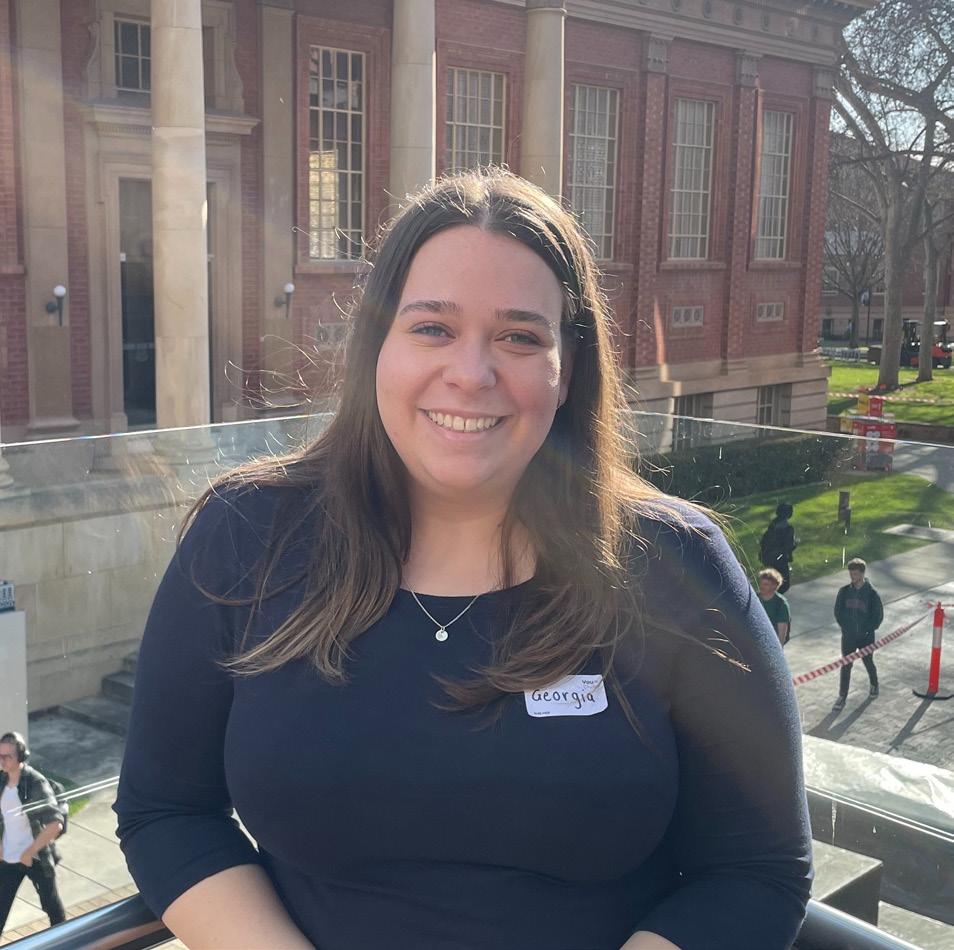
Hi, I’m Seb! I’m a first year Media student, specialising in Journalism (having already completed a Bachelor of Arts majoring in Politics and International Relations). When I’m not studying (or procrastinating studying), there’s a good chance I’ll be writing. What that is, it depends. Sometimes it’s an election analysis. Sometimes it’s a delightfully weird and/or horrific piece of fiction. Maybe I should blend the two someday?
As someone who loved talking and writing about elections, but had no idea how to actually get these pieces out into the world, On Dit provided a platform. From 2020 to present onwards, I have keenly contributed to On Dit, with my love of writing only growing under the guidance and encouragement of the 2021 and 2022 editorial teams. In times when finding the motivation to write was tough, it may have been easy to reconsider, but their support made all the difference. It is my honour to step into this position and encourage a new generation of writers to get involved. As well as being a means of keeping students informed on student and societal affairs, and holding those in power accountable, I see On Dit as an outlet for students who have a voice, a funny little poem, or an opinion they want to scream.
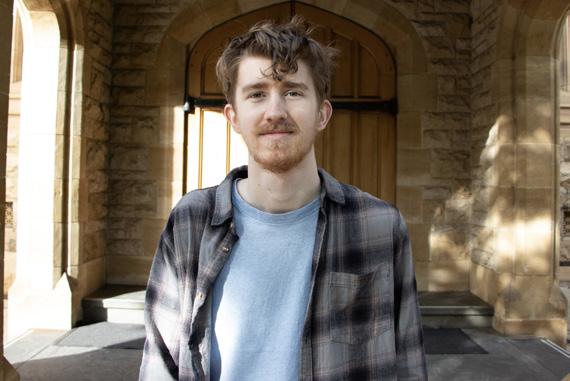
Hola, I’m Kathers. I have two left feet and have been hiccuping daily for over two years (I’m getting better… for now). To combat these issues, I have returned to study as a mature age Arts student, majoring in Creative Writing and Indigenous Knowledges. My passions are games (of all assortments and varieties) and watching animations, as well as reading, writing, and editing texts – the more whimsical the better.
Being an Editor for On Dit is an incredible privilege, one that I plan on taking advantage of to make it as weird and wonderful as possible. My passion project for this year’s On Dit is the creation of the Gig Guide: my hope is for it to become the place for Adelaide University students to learn of the performances being held by their fellow students. However, I can’t make this happen without your input, so please, performing students - whether you’re part of theatre, in a band, a martial artist, or having a cooking demonstration, email us and we’ll send you the link to our Guide.

Hey, I’m Louise! I’m in my fourth year of a Bachelor of Media and International Relations. I’ve always loved politics and hope to one day get an incredibly elusive political journalist position. When I’m not clinging to academic validation, I can normally be found in a choir rehearsal. I grew up in the world of classical choral music and just never left! I’m now President of the Adelaide University Choral Society. To fill my remaining time, I love spending too much time on my old lady hobbies of reading, baking, sewing, crochet, and embroidery.

I started writing for On Dit as a sub-editor and opinion columnist in 2022. I like writing pieces that break things down, explaining the nitty-gritty of politics, world events, and, on occasion, Eurovision. I believe creating a platform for students, by students, is of the utmost importance. On Dit is a place where student issues can come to the forefront, while also serving as a showcase of our community’s creativity. I can guarantee in On Dit 2023, everyone’s work will be shown with pride.
Hi, I’m Sienna. I’m doing the graphic design for On Dit this year (no pressure hahaha). I’m an English Honours student from rural NSW, so you can only imagine how much I love the sound of my own voice (only half-joking). I hope to start my PhD next year and continue my honest work of bothering the English faculty with my nonsense. Not to be stereotypical, but I read and write (shocker) more than I consume liquid. I suppose that’s not hard - I’m severely dehydratedthough, it sounds good on paper. I stumbled into the On Dit team by complete accident (more so dragged in by the hair after a strange coincidence), but I can’t say I’ve regretted a single moment of it. Continuing the legacy of On Dit is an incredible honour, and I hope that On Dit 2023 is just as monumental. The student voice must be heard. Not just a couple of Arts students, but the student voice more broadly. I hope to showcase the incredible talent, diversity, and multiplicity of perspectives the university community has to offer. More than anything, I would love for On Dit 2023 to be collaborative and accessible, and I intend to reflect that through the designing and advertising of the magazine.
 SiennaSulicich
MLouiseJackson
SiennaSulicich
MLouiseJackson


We’re in the grips of festival season, so here are the editors top picks!



I am, without a shadow of a doubt, a WOMAD baby. My family did not go on overseas trips - we went to WOMAD. While it is often dismissed as a ‘hippy type’ festival, I truly believe there’s something for everyone. WOMADelaide is held every year on the March long weekend in Botanic Park. It is a celebration of the rich variety of music, art and dance offered throughout the world. Going to WOMAD each year has exposed me to so much music I never would have discovered otherwise, live! It is also home to the world’s best cinnamon doughnuts, courtesy of Byron Bay Organic Doughnuts.
As a past film student and a lover of cinematography, I have to recommend the Adelaide Film Festival. Go with your partner, go with friends (I prefer to go solo), and watch as many amazing films from across the globe as you can over the 12 day period in October. There are special events, such as Q&A sessions, if you manage to snag tickets to the first showing. I also highly recommend checking out the Fleurieu Film Festival. Unfortunately, it has already occurred this year, but if you want to discover upcoming local, interstate, and international talent, take the trip to McLaren Vale in the Fleurieu Peninsula. It’s hosted over one night and is full of amazing entertainment and famous Fleurieu Peninsula wines. If you’re feeling brave enough, you can even submit some of your own work!
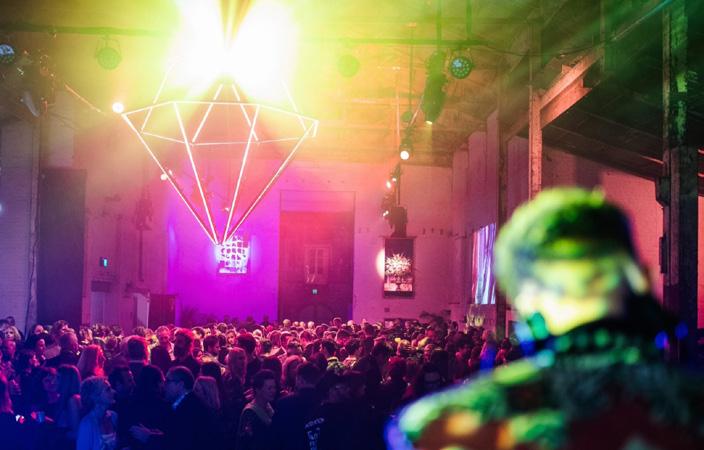
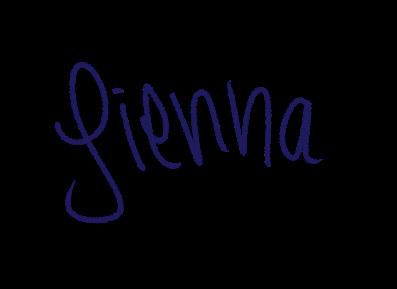

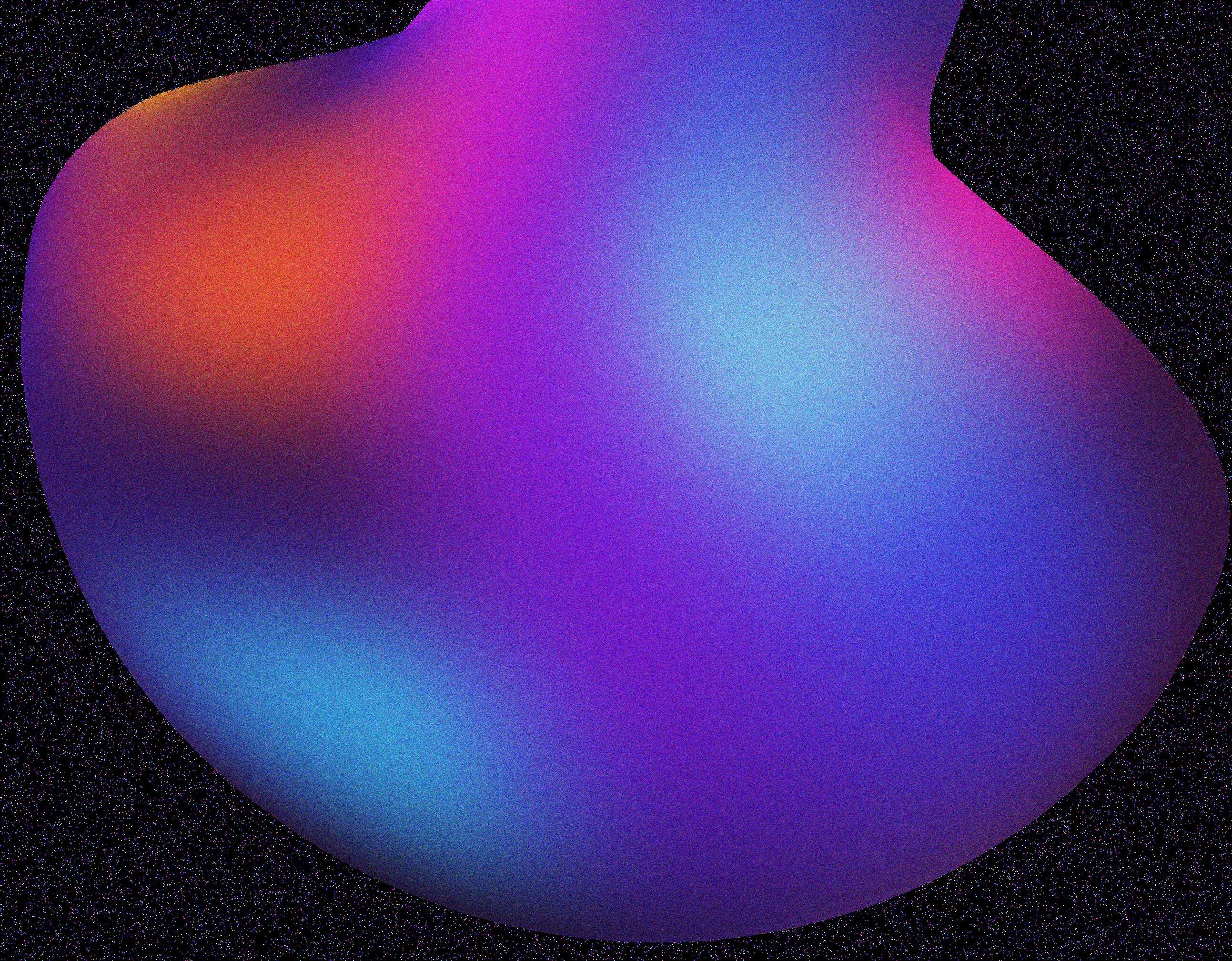
As an avid writer, I think I’m required by law to recommend Writer’s Week. All jokes aside- I cannot recommend it enough. Last year featured talks from several high-profile guests (my political brain was geeking out!) and this year’s no different, with several big names amongst their nearly one-hundred featured writers. Held from 4-9 March in the Pioneer Women’s Memorial Garden, this event is easy to access, and best of all - totally free! Whether you bring your friends or go alone, a day at Writers’ Week is guaranteed to be a good day out. If I can recommend one thing, though, it’s to arrive early - as popular talks can fill up fast.


I bring to you, the biggest drag doof in the Aussie outback: Broken Heel. Hosted by my home town of Broken Hill, Broken Heel is a one-of-kind experience for the girls, gays, she’s, he’s and they’s, showcasing Australia’s best drag queens in a three-day festival extravaganza. Broken Heel is always an amazing time of year back home. Every September, the feather boas come out of the closet, and the extremely conservative mining town is painted with rainbows and glitter for a weekend. I love drag, I love makeup and I love this beautiful celebration of individuality (truly quality entertainment).

1. I've done karaoke twice in my life but if I could choose any song it'd be Propagandhi's ‘Fuck the Border’.
2. I have a habit of wearing shorts regardless of the weather.
3. The best advice I could give to new students is to do your best now, you don't want to be coming back in twenty years time and doing this shit as you're approaching forty.

We ask four UofA students the most pressing questions. If you want to be featured in another issue, email us!
1. Karaoke Go-To
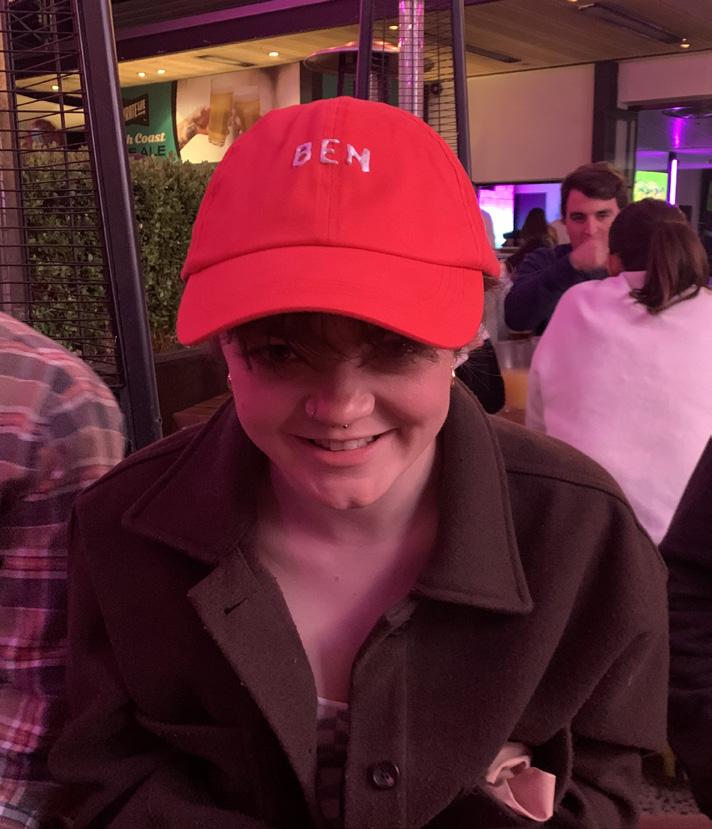
2. Personal Quirk
3. Advice for new students
1. Don’t go Breaking my Heart by Elton John and KiKi Dee (but it has to be with the right partner, and I’m always Elton)
2. I stick my tongue out when I say ‘shhh’ sounds. And that’s that on that.
3. Take your time, there’s no rush to finish your degree. If you need a break, take a break, don’t be afraid to take one and put yourself first.
Dwayne Featherstone SavannahMorris4th year Bachelor of Arts (double major in Politics and International Relations) and Bachelor of Law
1. You’ll only catch me tearing up a karaoke mic when I’m one too many shots into a night out! I live for awkward, powerful and depressing songs like Crowded House’s ‘Better Be Home Soon’ and Chris Stapleton’s ‘Tennessee Whiskey’.

2. Quoting Vine references has become a personality trait for me at this point. “That was legit-ness!”

3. I recommend joining both a faculty AND a hobby club. Faculty clubs can help you make connections with people in your discipline; hobby clubs can help you build lasting friendships with like-minded people who share a common interest.
1. “Louder Than Words” from Tick, Tick... Boom!
2. I can only write or draw on blank paper. My brain will feel so constrained and stop functioning when I see lined paper.
3. Get out there, make new friends and talk to people. You will find Adelaide is a lovely city with lots of nice people!
1. Do you support the proposed merger between the University of Adelaide and the University of South Australia?
2. Should the University of Adelaide adopt a STEAM (Science, Technology, Engineering, Arts, Mathematics) model to influence curriculum priorities as opposed to the heavy focus on STEM subjects?
3. Chief Medical Officer Paul Kelly warns of “new waves on a regular basis for at least the next two years” and SA Health urges mask usage. Does mandatory masking need to be reintroduced to combat this persisting threat to public health?
1.‘Mergers’ are code for cuts. For staff, this means larger classes, fewer resources and an overall worse work environment. For students, this means poorer quality education.
We strongly oppose the university merger: it aims to increase international rankings (which only factor research output, not education quality) to attract international students who pay higher fees to study. It is therefore motivated by profit-making, inter-university competition and further corporatises higher education.
2.Adelaide University underfunds and neglects the arts, but incorporation into STEM is no solution. The STEM model is underpinned by a neoliberal view that conflates scientific education with economic competitiveness.
This elevates the most profitable attributes of the curriculum while narrowing the scope of academic inquiry. Neither arts nor science subjects should be justified in terms of their potential to produce graduates for profitable industries, but instead should be geared to improving society for the better.
3. COVID is still a massive health risk; mandatory masking should continue to be an essential requirement when in public. Any nonchalance displayed towards this is the direct result of a campaign by businesses and the state to prioritise profit over human life. Wearing masks in public is an act of social solidarity, and the least that we should do.
1. The Greens Club fully opposes any form of university merger. Both federal and state governments in addition to uni management are continuing their assault on tertiary education. We have seen that faculty mergers and course restructures lead to cutting of staff, degrees and courses. This merger will be like that but on steroids. Ultimately students will be most greatly impacted, seeing a huge reduction in their quality of education.
2. Trying to narrow down a list of the “important” disciplines is inevitably pointless. They are all important but incomparable. Universities should be striving to improve the quality of education in all disciplines and should especially resist the neoliberal push to focus only on subjects which generate short-term profit.
3. Kelly’s prediction should be alarming. Vaccines are imperfect and COVID-19 remains an ever-present danger, especially to the immunocompromised. Government policy must reflect scientific adviceimplementing mask mandates in high-risk settings. The government must also guarantee decent paid sick-leave. Our safety is at risk when profits are put before people’s lives.
1. Yes, UniSA and Adelaide Uni have always had different strengths and by combining forces would provide better learning experiences for students and graduating students would have greater practical knowledge and experience. Combining the sports clubs will bring stronger teams to Unisport Nations and will make our teams more competitive with the bigger Unis.
2. Absolutely not! Science, Technology, Engineering and Mathematics are all closely related and feed into each other well, focusing on facts, data and the scientific method. They also are used to encourage under-represented groups to join STEM fields after graduation, arts already has representation and should not dilute STEM’s goals.
3. No. Obviously with the exception of the health clinic. Current SA guidelines recommend masks inside when you have tested positive or are a close contact. It’s unnecessary to force the students to wear masks. If students want to wear masks they can, if not we shouldn’t force them to
1. The merger represents an opportunity to conduct research of scale and focus, as well as shakeup learning standards and student representation. Given that the proposed institution would instantly become the biggest in the land, SA may also achieve its dream of cracking the top 50 QS-rated universities. Rest assured; if the price of compromise is too high the Merger Commission has promised to scrap the plan.
2. STEAM isn’t just another curriculum fad; it was conceived in the 1990s and offers significant critical and ethical learning benefits. But reorganising students’ higher-order abilities is a gigantic undertaking, and University Adelaide is looking outwards not inwards right now. Unlike primary and secondary schools, I don’t see it happening at universities anytime soon.
3. Yes. Hospitals are log jammed and there’s a very high probability of another wave before the end of 2023, yet the Government is rolling back many COVID arrangements. Soon, PCR tests will require a doctor’s referral – bad news for students who are skint and forced to be in crowded classrooms all day.
By Emma Moffatt @cinnamoniscool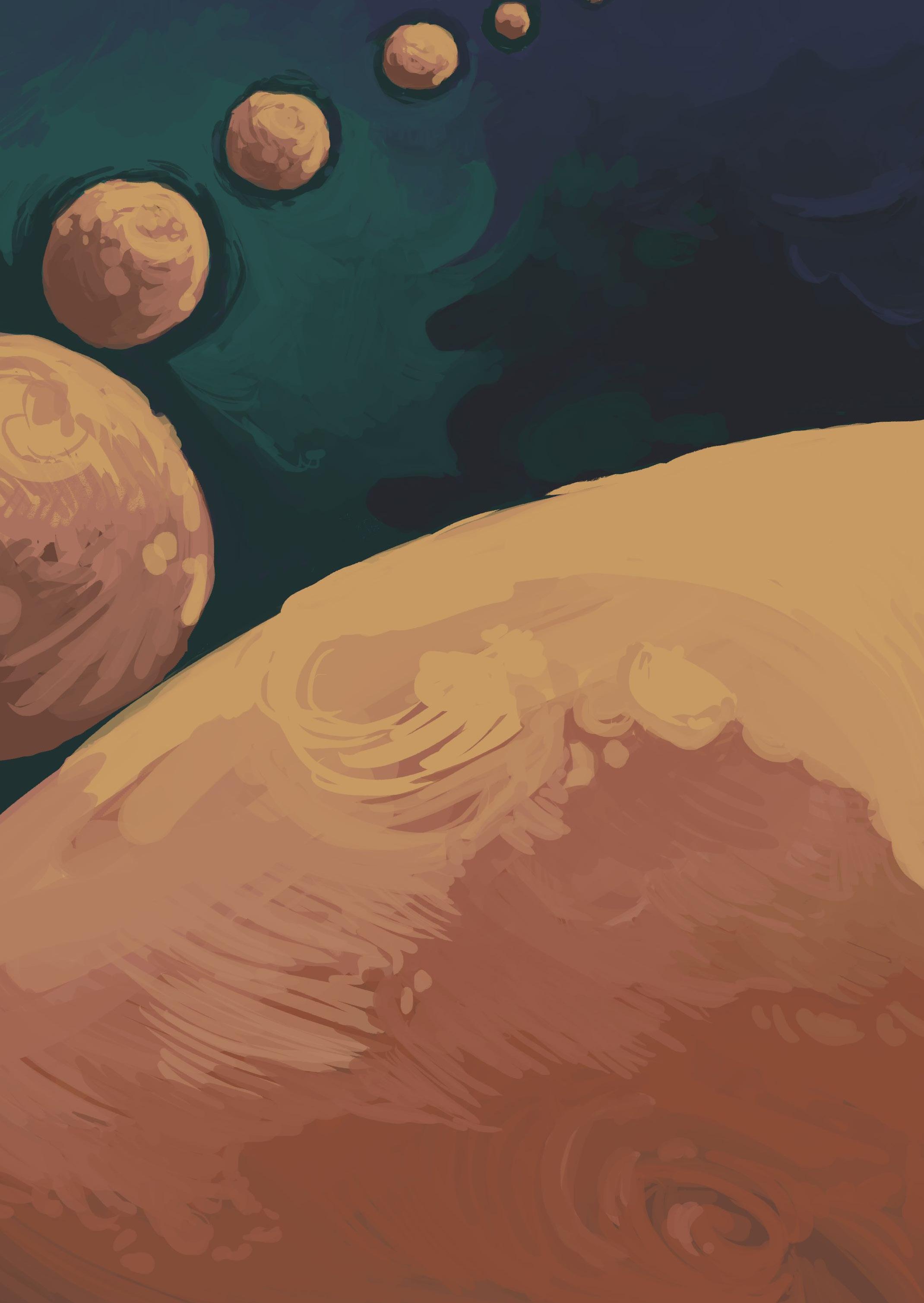
Let’s get one thing out of the way: Jenna Ortega bloody slayed in Netflix’s Tim Burton-helmed take on the goth icon Wednesday Addams. Truly, she ate and left no crumbs at the Rave’N Dance (Tyler really gave us nothing). I’m not even mad that her self-choreographed dance has spawned a TikTok trend (to a Gaga song that wasn’t even featured in the show, but I digress). I’d be lying if I said I haven’t regularly staged my very own rendition at the witching hour over the break.
What I am mad about is the fact that neurotypical people online are suddenly celebrating the ‘quirkiness’ of an autistic-coded character. I can already hear the reprisal ‘but acceptance is a good thing!’ And to that I say, it’s giving hypocrisy. Why is it cool and endearing when Wednesday is blunt, monotonous and expressionless in her communication, while struggling to “interpret [her peers’] emotional morse code”, but not when an autistic person displays these same traits in a seminar room? It’s appallingly telling. Neurotypical students find it trendy to imitate her construed sensory-seeking behaviours over the summer, yet, come late February, they shun and ridicule their peers who don’t learn and behave like them.
I’ve witnessed these double standards firsthand. In Semester 2 last year, I was enrolled in a workshop with a couple of students who outwardly appeared to be neurodivergent. One such student very eagerly participated in class discussions, habitually offering opinions and comments that were ‘inappropriate’ to the context or otherwise ‘obvious’, as gleaned from the snickers emitted by the people around me (‘normies’ who, might I add, put in zero effort themselves). Even the workshop leader failed to disguise their implicit bias, based on the condescending tone they adopted to respond to the student’s contributions. Ironically, one weekly topic was on, you guessed it, disability and ableism.
While I’m not a goth, by any means, I also find it hypocritical that those normies partaking in the Wednesday trend are appropriating a subculture of anti-prejudice, one that serves as a safe space for those they (and mainstream media) deem to be outcasts (queer people, POC and religious minorities inclusive). After all, the media thrives on portraying difference as dangerous (just look at past moral panics regarding Satanism and homosexuality). As if living in a society that caters to your neurotype isn’t enough, now social climbers are dressing in all-black, applying copious amounts of eyeliner and displaying a superficial interest in the spooky and bizarre, just to garner some views online? Performative activism at its finest.
So, the next time you dance, dance, dance with your hands, hands, hands above your head, head, head: ask yourself, will you “love thy neighbour” like Jesus said?
University of Adelaide students with a diagnosed disability or ongoing medical condition may be eligible for assistance from Disability Support.
Disability Advisors provide personalised advice to students registered with the service by identifying Reasonable Adjustments (extensions, Alternative Exam Arrangements etc.) and how to negotiate these with academic staff via an Access Plan.
To Register with Disability Support visit: https://www.adelaide.edu.au/ disability/how-to-register
Clement, C 2022, ‘Wednesday’s neurodivergent coding is both good and bad’, Digital Spy, 13 December, viewed 24 Jan 2023, <https://www.digitalspy. com/tv/ustv/a42227889/wednesday-neurodivergent-coding/>.
Myllymaa, E n.d., ‘The Origin and Development of the Creative Goth Subculture’, Atmostfear Entertainment, n.d., viewed 24 Jan 2023, https://www. atmostfear-entertainment.com/lifestyle/fashion/ origin-development-creative-goth-subculture/.
University of Adelaide 2022, Disability Support, University of Adelaide, viewed 24 Jan 2023, <https://www.adelaide.edu.au/disability/>.
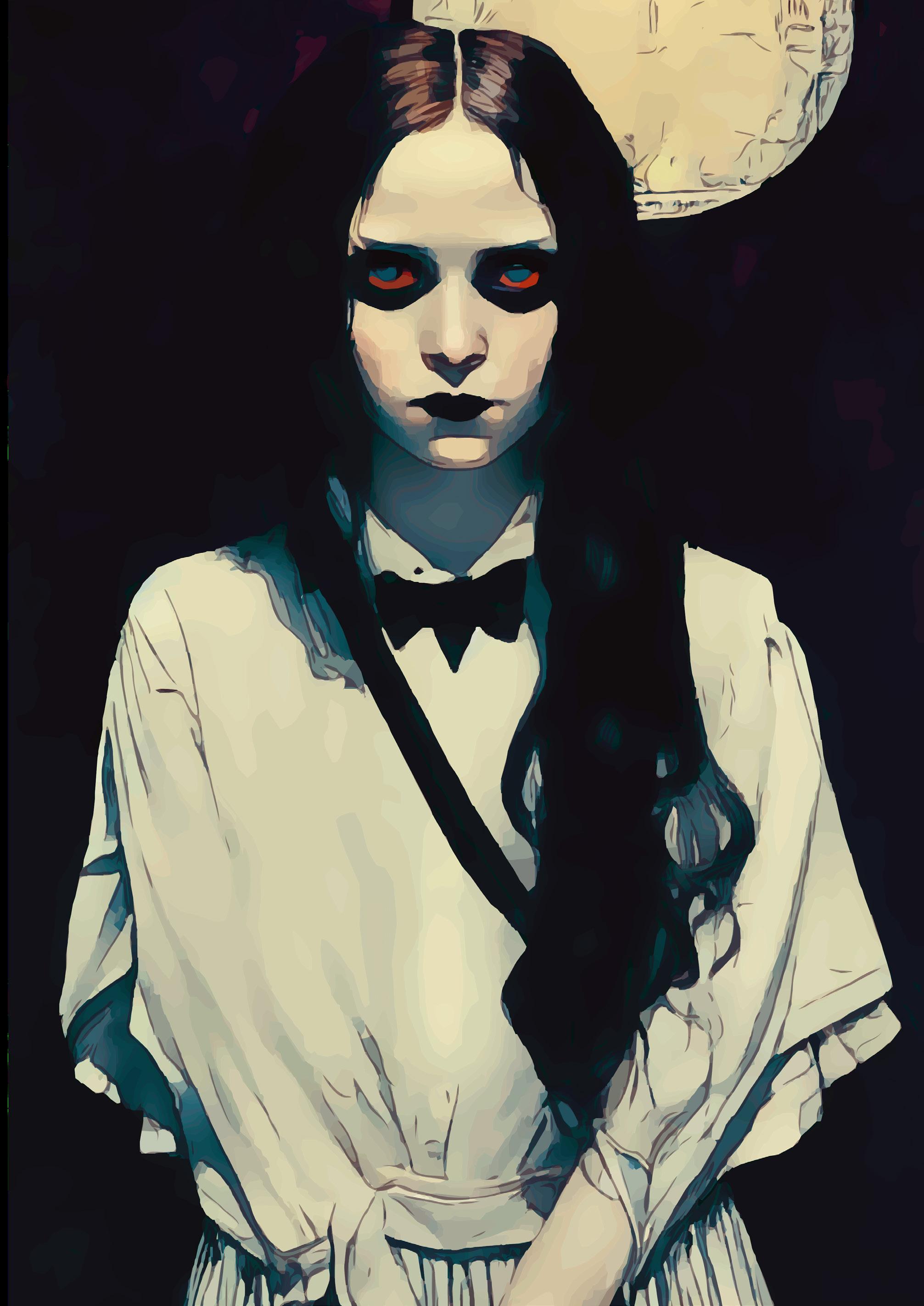
Money. Inflation. GDP. Supply. Demand - Boring.
From a surface level, economics deals with big and important topics about how countries handle their finances. So, what does it have to do with everyday people like me? Why should I care about international trade or interest rates? I’m not a banker or a politician.
Unlike finance or accounting, economics isn’t a tool but a social science. Economists observe a system that has evolved naturally over thousands of years to understand what is going on in the human world and create models to replicate these situations. It delves so much deeper than macro trends in an economy. In fact, macro economics, the study of large economic systems - like a country, is the end of a very long chain of connections that economists deal with. Economics is the study of choice and how individuals make decisions given a scarce number of resources. Economics is a child of philosophy whose study goes beyond money that seeks to understand how individuals form a set of values from which they act in the world. How does one decide how to live their life? The answer lies in the value structure they use to navigate society.
Economists create models in which different individuals with different values interact to form an equilibrium outcome. This can be financial, political, itembased…the list goes on. Some people want money, some want a family life and governments set rules and provide incentives to achieve this. All these agents interact together to actualise a constantly changing reality. Adam Smith, the father of economics, called this the ‘Invisible Hand’ of the market, a silent force that leads to outcomes between individuals. German philosopher Hegel called it the ‘World Spirit’ but I guess we could just call it society. Regardless of name, economics helps us to understand this ‘force’ and point us into a positive future direction. Economics is really just another lens through which we can view the human experience.
George YoungWhat are some examples of economics in our daily lives, you ask? A core concept in economics is that of opportunity cost in which every action we take implies another action we could have taken, but we miss out on. There are only 24 hours in a day and we each have to choose how to use them. You could go to work for money in the near future, study at university for money in the distant future, or use that time for leisure and instant enjoyment. The way we choose to spend our limited time is dependent on the ‘utility’ or gratification we receive over different time spans. Some people are more patient while others can’t wait but we all have different budgets that we are confined to.
Now imagine millions of people all undergoing the same dilemma as they live their lives. All their work, study and leisure can combine to form an economy! Suddenly terms such as nominal interest rates and CPI become far less abstract. It’s about people, not politics. And everyone has their own effect on the economy. With an understanding of how individuals act, economics is a useful tool for us to approach complex problems like human trafficking, ambulance ramping, illegal marriages, government corruption and poverty. How come Hungry Jack’s, McDonald’s and KFC all open right next to each other? We’ve got a model for that. A truck driver in South Africa needs more money to support his family so he pays bribes to government officials to overload his truck: this causes the roads to wear down faster and now everyone is at risk. We’ve got a model for that one too. How do drug cartels operate and what can we do to stop the spread of opioids? There’s a model out there for that too.
This year we want to explore the vast array of applications economics has in store for everyday people like you and me. So look out for our EconDit articles, and in the meantime: reflect on what drives you to make your decisions and how they affect other people. We’re all part of one big system.
Remember, economics is about people and choices - not just money.
Welcome to 2023! Whether you’re a student looking to engage in university life, university staff, or a member of the public seeking to connect with like-minded individuals, or someone whose New Year’s resolution was to live more sustainably, the Adelaide Sustainability Association (ASA) would love to have you along.
The ASA is a group of people of varying degrees, majors, and experiences who believe in a sustainable way of life. In fact, the majority of our members are not studying environmental or sustainability-focused degrees.
Although the definition of sustainability varies from one person to the next, the overlapping theme is that the current path of humanity is far from ideal. As a club, our aims are to spread awareness, give back to the planet, and give future generations a better world to live in. Many aspects of our current society are built around inefficient constructs and processes which do more harm than good to our land, ecosystems, and planet. The ASA aims to address these issues to a practical extent and offer connections to businesses, careers, and other lifestyle choices that can be practised symbiotically with the planet rather than parasitically.

Now, don’t be scared off by the lofty goals. As members of the ASA, you are free to choose the events and goals that align with your own views and comforts. Regardless of what you choose to eat, how you choose to get around, whether you inherit wealth from destructive processes like mining, petroleum, or oil companies… Okay, maybe not the last one (but we would love to help educate and direct anyone in that last situation to more sustainable alternatives).
The ASA collaborates with a number of other clubs, including the Adelaide Uni Vegan Club, the Adelaide Fashion Collective, and Women in STEM Society. We also work closely with the University of Adelaide’s sustainability engagement program, Ecoversity.
Our collaborations with other clubs and the work of our ASA committee allow us to run and participate in a number of events. Our favourites include the Sustainable Food Festival, where we share food from delicious plant-based cafes and restaurants around the city, our ball, Sustaina-ball (supported by our clothes-swap initiative), which encourages wearing pre-loved garments or something you already own, and finally our largest events extravaganza: Sustainability Week.
Sustainability Week is THE occasion for the passionate student who loves the chance to skip classes - a whole week of sustainability-focused events, from careers workshops (with the Careers team) to Torrens walks, clothes mending workshops (with Makerspace Adelaide) and learning about the relationships between the tea industry and the environment (with UofA’s Tea Club). If you’re not on campus, at Waite or Rosey, or attending uni online, we have plenty of online talks and workshops during Sustainability Week and the wider year.
Many of our events focus on improving the sustainability of our personal lives and fostering connections between like-minded individuals (or connections between people who don’t consider themselves experts on sustainability but who are just there to learn something new, maybe fix that hole in their shirt, or score some good food). The overarching aim is to bring people together, and we’re glad to achieve that, no matter what the individual motive of each person is.
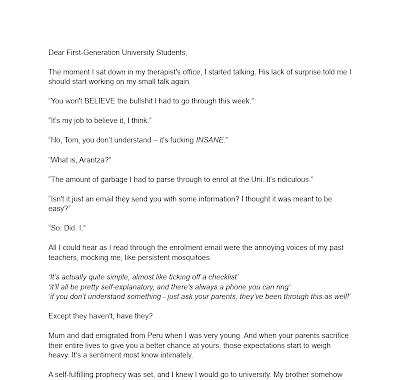


In 2023, the ASA is excited to reach a wider audience, connect with more clubs, and put on another great year of events. As the year progresses, we’ll have a more definitive events list with dates, but for now, our team is getting excited about:
Build a terrarium workshop, an opportunity to meet our team and get to know the ASA.


Sustainable Food Festival 2023, with a focus on food from a range of different cultural backgrounds through collaboration with the many cultural, language, and food-based clubs on campus.
Sustainable engineering careers night, which invites lecturers, companies, students, and other engineering clubs at the University of Adelaide to network, promote themselves, and learn about potential career paths in the engineering field.




Sustainability Week 2023, in conjunction with Ecoversity, usually running in term 3.




If you’re keen on an event that we haven’t mentioned, feel free to slide into our DMs via Facebook Messenger or Instagram Direct Messages and pitch the idea! The QR code at the end of this piece will take you to our ASA pages. If you’re interested in hearing more about our events throughout the year, the best way to be kept in the loop is to sign up as a member via the QR code (100% free) and follow our socials pages.
If you want to work with our team in events planning, brainstorming, and of course getting the best behind-the-scenes access to what’s happening in the UofA sustainability scheme, a committee position is absolutely the way to go. To join the committee, scan the QR code & follow the “Committee Member EOI” expression of interest.
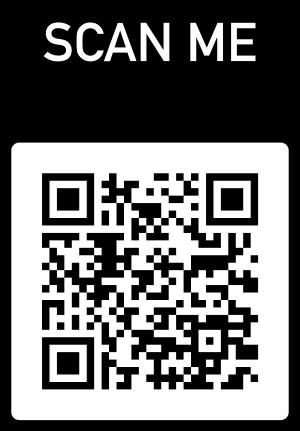
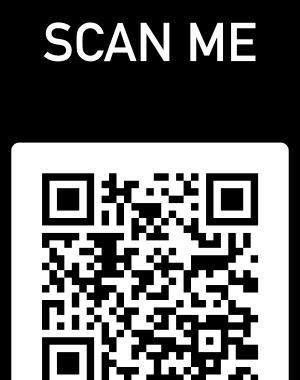
Additionally, we’ll be holding an SGM (Special General Meeting) in the next few weeks and we’d love to see you there! This is the perfect chance to meet the committee, see what we’re up to, and join in if you’re interested. Drag a friend along too - it’s how most of us got involved with clubs in our first year. Whether you’re a newbie, returning student, lost UniSA student, or staff member, we’d love to have you on board with the ASA for 2023.
Wishing everyone a great start to their year, and we’re looking forward to meeting you down the track!
 Annabel Fedcesin_That Day - seco
First-Generation U Ariana Haghighi & Marlow Hurst_ ASA linktree QR code.png
Open with Open with
Annabel Fedcesin_That Day - seco
First-Generation U Ariana Haghighi & Marlow Hurst_ ASA linktree QR code.png
Open with Open with
January was a month-long slow-newsweek in the 70s. Australians were in holiday mode. This was also a time before the internet and social media, where the media were known to pull pranks on viewers with occasional comical reporting. This combination left a fertile soil for reporting on the absolute absurdity of Nash’s prediction.
Adelaide. Don Dunstan. Doomsday.
Clairvoyant, Josh Nash, united these concepts in 1976 with a dubious prediction that Adelaide would be wiped out by an unprecedented tidal wave. Despite his grandiose visions of the future, Nash was simply a local painter, driven by religious convictions.
In September of the previous year, South Australia, under Premier Don Dunstan, had become the first state to decriminalise male homosexuality. This was on top of social reform, First Nations rights discussions and contesting the White Australia Policy. Such progressive moves had shocked the state’s large conservative voter base. Nash himself made the move from Melbourne for a ‘bluer’ pasture.
Between 10:30am and 12 noon on the 19th of January.
Nash claimed to be experiencing a repetitive vision of a massive tidal wave and earthquake, wiping out South Australia in an act of divine punishment.
While the media was not taking the supposed prophet seriously, some groups did. Rumours of beachside properties being sold at a bargain, employees pulling sickies and people packing up to head to the Riverland were rife.
Most did not believe the prediction, but still, a thrum of anticipation filled the air.
Mock protesters lined the shore: some dressed in snorkels and floaties, some with their surfboards and others with signs welcoming their doom. The floaties infiltrated offices as well. In true Aussie fashion, most took a humorous approach to doomsday prepping.
Premier Don Dunstan could also be found at the beach, going about reassuring the masses. As the wave (possibly) approached the shore, he ascended to the balcony of the Glenelg hotel.
A fan of a laugh himself, Dunstan declared that if the wave came, he would stop it like King Canute. Furthermore, Nash would not be welcomed back to the city of Adelaide.
Naturally, as the clock passed noon, no wave came. The state did not shake. The sun kept shining on a beautiful January day.
Crowds dispersed – some home, some to the bar and some to more regular beachside activities. South Australians were left with nothing but a funny story of a day that would stay with them forever (for all the right reasons).
Before the day even came, Nash had allegedly packed up, sold his house, and moved to a small town in New South Wales to escape the oncoming storm. Though there’s no solid evidence, it’s believed his new property fell victim to flooding only a few years later.
Divine punishment indeed.
ABC News 2016, ‘Adelaide tsunami prediction by clairvoyant John Nash proved wrong, 40 years ago’, ABC News, 19 January, <https://www.abc.net. au/news/2016-01-19/adelaide-survived-tsunamiwhich-never-came-40-years-ago/7097976>.
Byrne, B 2015, ‘Adelaide Remember When: Clairvoyant John Nash predicted earthquake and tidal wave would obliterate Adelaide in January 1976’, The Advertiser, 11 January, <https:// www.adelaidenow.com.au/news/south-australia/ adelaide-remember-when-clairvoyant-john-nash-predicted-earthquake-and-tidal-wave-would-obliterate-adelaide-in-january-1976/news-story/ e11935a6d44b5281a47bbfdd65b2dc2d>.
Feat. Garden Animals, with Garden Animals Fiona O’Connor
23/2/2023 @ 8pm
Domain Theatre, Marion
$17.21
3/3/2023 - 4/3/2023 @ 7pm
The Velo Precinct, Rose Park
$17.21
Tickets available from the Adelaide Fringe website
Feat. Tiffany Gaze Quartet
8/3/2023 @ 7pm
Ayers House
$25
10/3/2023 @ 7pm
Ayers House
$25
Tickets available from the Adelaide Fringe website
Feat. Mashd n Kutcher (QLD), Montaigne (NSW), with Hope D (QLD), Kanada the Loop (NSW), Big Wett (VIC), The Empty Threats, Mason Dane (NSW), Oscar the Wild, Colter & Dj Checkers
25/2/2023 @ 4pm
Unibar Adelaide
$49.04-$74.53 from Moshtix
Feat. Ben Waller and Leticia Lee
4/3/2023 @ 8pm, 5/3/2023 @ 2pm
Diverse City, West Village
$35
10/3/2023 @ 7.30pm, 11/3/2023 @ 12.30pm
Memorial Hall, Tumby Bay District Soldiers’ Memorial Hall
$35
18/3/2023 @ 7.30pm
Brighton Sports and Social Club
$35
Tickets available from the Adelaide Fringe website
Feat. The Masters Apprentices, with Mum’s Favourite, and Birds are Spies
4/3/2023 @ 4pm
Unibar Adelaide
$30-$35 from Moshtix
Ethan Hubbard
Feat. Ethan Hubbard, with Ebony Emili, Violet Harlot, and Alexander Black (solo)
17/3/2023 @ 8pm
Unibar Adelaide
$11.72 from Moshtix
Feat. Unwritten Law
12/3/2023 @ 8pm
Unibar Adelaide
$49.23 from Moshtix
Taylor Swift Night
Malibu Drive (Malibu Drive does Disco)
Feat. Malibu Drive
23/2/2023 - 25/2/2023 @ 9pm
Nexus Art Venue
$25
2/3/2023 @ 10pm
Nexus Art Venue
$25
Tickets available from the Adelaide Fringe website
Feat. Just Floyd
3/3/2023 @ 8pm
Unibar Adelaide
$43.33-$48.94 from Moshtix
Feat. Satin Sun, with Bermuda Bay, All She Wrote, and Jessie’s Overalls
24/2/2023 @ 8pm
Unibar Adelaide
$11.83-$16.92 from Moshtix
Feat. Dreamland Isthmus
9/3/2023-14/3/2023 @ 7pm
2/F Arthur Artbar
$25
15/3/2023-19/3/2023 @ 7pm
2/F Arthur Artbar
$25
Tickets available from the Adelaide Fringe website
As students reading this may or may not be aware, the University of Adelaide and the University of South Australia have recently reopened talks of pursuing a merger. This would see the two institutions combine into one, planned to be named ‘Adelaide University’. This new institution would employ an expected 3,100 staff and provide for 70,000 students, making it Australia’s largest university.
At the moment, a feasibility study is being conducted to determine whether pursuing the merger is in the best interest of the two universities. If the study finds in favour of a merger, then the new institution is expected to commence operation at the beginning of 2026.
Proponents of the merger cite greater international competitiveness, and capacity to attract domestic and international students, as well as research opportunities and funding as reasons to pursue the merger. Opponents cite staffing cuts, loss of programs, and what’s perceived as a prioritisation of ‘research culture’ over student life.
Among proponents is South Australian Premier Peter Malinauskas, who highlighted the merger as an election promise and has applauded the initiative taken by the chancellors of both universities. However, as noted, there remain concerns, as well as unanswered questions about how the proposed merger would impact staff and students. In the hopes of receiving some clearer answers, I reached out to the Premier with a few questions.
(Neither the following questions, nor responses have been edited)
52% of South Australian NTEU staff surveyed in June 2022 opposed the merger. What can you say to counter this opposition?
This Statement of Cooperation is based upon an underlying principle of no net job losses. In fact, we expect that the new university will grow opportunities for both academics and professional staff. Staff will have the opportunity to see the potential model developed through the feasibility assessment, business case and financial plan.
To a current, new or prospective student reading this, how would this merger enrich their university experience?
Should it be established, this new university will be the largest educator of domestic students in the country. That’s a big deal. Students who are able to choose between university offers are more likely to select higher ranked universities. This is true of domestic and international students. There is evidence that the quality of the students enrolled correlates with how well a university performs in rankings. If we are to keep the best of our young people in South Australia, we need to have a high ranking university. We’re determined to make sure the next generation of students has every opportunity to be able to participate in the economy of tomorrow. We don’t want to see all of that opportunity go to people in other jurisdictions or in other parts of the world, where large, well-funded universities are becoming more and more commonplace.
Zero net job losses have been promised. Given that the estimated staff count of the proposed institution is less that than the current staff of both institutions combined, how is net-zero achievable?
Both universities and the State Government know this will contribute in the long term to more jobs, not less. And that is a good thing. We’re seeking to grow the size of the institution into the future. High quality researchers are likely to choose to work at universities with higher rankings. This then leads to more productive research and higher research funding.
Critics have claimed that this merger will prioritise research outcomes to the detriment of student learning outcomes. What can you say to counter these claims?
This is not an either-or proposition. This new university can draw on the best parts of both of its predecessors to deliver both excellence and equity. On day one, the new institution will be ranked in the top 6 in the country, and will be ranked 2nd for students from a low socio-economic background. It is vital we deliver the world’s best education to a diverse student population ensuring students from all backgrounds have equitable access to a university education of an elite global standard. All students need to be ready for the jobs of the future and through our ambition for a new university that offers Australia’s most contemporary, future focussed teaching and learning, with digital underpinning, we think students would not only have an outstanding student experience, but would be set to achieve globally competitive employment outcomes.
As a University of Adelaide alumni, and “pretty average footy player” for the Adelaide University Blacks, do you see a risk of our university’s rich culture being diluted or lost altogether?
I might be a pretty average footy player, but I don’t want to settle for an average university. The University of Adelaide has an incredible history over the past 150 years, and a formative place in developing South Australia’s culture. The leadership of both universities recognise the strength the University of Adelaide will bring to this new partnership. This is about making sure that reputation is enhanced, so that we have an institution which not just survives, but thrives in an internationally competitive environment over the next 150 years.
In summary, is there anything else you would like to add to sell this proposed merger to students and staff.
The truth is, the universities in Australia that are thriving are those that are larger. We simply can’t afford not to be visible on the global stage. This is fundamentally important to the future of our state. The South Australian and Australian economies are not as complex as our international trading partners. Developing the sharpest minds in the world is going to be fundamental to guaranteeing our future prosperity.

The moment I sat down in my therapist’s office, I started talking. His lack of surprise told me I should start working on my small talk again.
“You won’t BELIEVE the bullshit I had to go through this week.”
“It’s my job to believe it, I think.”
“No, Tom, you don’t understand – it’s fucking INSANE.”
“What is, Arantza?”
“The amount of garbage I had to parse through to enrol at the Uni. It’s ridiculous.”
“Isn’t it just an email they send you with some information? I thought it was meant to be easy?”
“So. Did. I.”
All I could hear as I read through the enrolment email were the annoying voices of my past teachers, mocking me, like persistent mosquitoes.
‘It’s actually quite simple, almost like ticking off a checklist’ ‘it’ll all be pretty self-explanatory, and there’s always a phone you can ring’ ‘if you don’t understand something - just ask your parents, they’ve been through this as well!’
Except they haven’t, have they?
Mum and dad emigrated from Peru when I was very young. And when your parents sacrifice their entire lives to give you a better chance at yours, those expectations start to weigh heavy. It’s a sentiment most know intimately.
A self-fulfilling prophecy was set, and I knew I would go to university. My brother somehow escaped this fate – and my parents didn’t really care, because they’re lovely. But I cared, a lot, because that weight felt even heavier on my shoulders. What a dick move on his part, right?
And now, reading this enrollment email felt like trying to read morse code. Every word brought up three more questions I needed to ask someone; someone I didn’t have. Never had I felt so stupid.
“Arantza, we’ve spoken about this. Negative words re-establish-”
“Re-establish negative emotions, I know, I know. It was just what I was feeling at the time.”
“That’s okay. Please, continue.”
Tom is right, it’s not stupidity. It’s just my brain trying to blame itself rather than the environment it’s in.
It’s just having to be a first-generation University student.
A first-generation University student is a student whose parents did not attend University. For some, this is a result of poor economic or social status, for others it’s due to also being a first-generation immigrant. Essentially, it results in a lack of readily accessible resources or knowledge on how to navigate education after high school – a complicated roadmap of HECS debt schemes and unnecessarily complex course finders.
It’s representative of the lack of resources and consideration given to already disempowered communities, making the climb up the social and economic ladder within our society even more difficult (because that’s something we reaaallly needed).
Someone once told me that a person should die more successful than their parents were – that it was just the natural progression of things – but that is a daunting task in a society that holds firmly onto its rigorous class structure and segregated communities. Institutional discrimination seeps itself into every infrastructure in our society. Unfortunately, university is no exception.
As an immigrant (a fact which, unlike some, is very physically obvious when one looks at me), this isn’t the first time I didn’t “get” something. There’s this fear that your immigrant status somehow excludes you from one big joke everyone else is in on. You don’t understand certain traditions or cultural references, or God forbid slang – and you are suddenly reminded that you are very-much-not-from-here. And when that “thing” you just don’t “get” is your enrollment into university, suddenly it’s not that funny anymore.
“How’d you do it, then? Did you ask for help, like we’ve been working on?”
“Yeah, I tried. Well, you know dad’s in Brisbane, brother never went to Uni, and no matter how much mum tried, she understood less than me. Had to go to the Uni –which was terrifying. Went to about three different service desks before I found one that was willing to sit down with me and go through everything.”
Those were the most enlightening 45 minutes of my life.
When I first sat down, I couldn’t see the person behind the comically large monitors hiding their face. But by now, they were my last resort, and desperation had slowly started to sink in.
Then she peeks out from behind her computer, and she has brown skin like me, and a soft voice adorned with a subtle Indian accent. All that anxiety and desperation leaks out of my bones, and I’m left comforted by the commiserating smile she wears when I begin ranting.
She explains how HECS works, what units mean, what is the difference between open and closed electives, and what my degree planner is actually trying to tell me. She tells me that I am doing okay, that this is normal, that I am not the first person to ask these questions and I won’t be the last. That I’m not stupid, the system is.
And that makes my rage grow, because it really shouldn’t be. She understands this too; fight in her eyes as she nods her head dimly.
Being an immigrant is difficult in so many ways, but at least it guarantees you a community of people who know exactly what you’re going through.
By the end of it all, I’m enrolled and exhausted, and that excitement is finally starting to creep in a little – because I’m a scholar at heart. But I’m still left with that lingering feeling of anger at having had that experience tainted by expectations of knowledge I did not have, by people who would not understand.
To all the first-generation university students just beginning their journey – remember that you are not alone (or, stupid). It’s okay to not understand everything, and even more okay to be angry at the world for making you feel that way. I encourage that anger, even. Let it simmer and manifest itself into action.
By the end of that therapy session, Tom reminded me that I shouldn’t just focus on the anger like I often do. So on his behalf, I also encourage you to seek help. To find a community of people who understand what you are going through and the pressures you are under, and to keep fighting for a system actually suited to helping the disempowered.
“Just wanted to say that time’s almost up, is there anything else you wanted to talk about? Maybe some more University questions I could help you with?”
“Actually... yeah. Even though she explained it, like, seven times, I still don’t really understand the whole HECS debt thing.”
“...I’m not going to lie to you, Arantza, I don’t really know either. I don’t think anyone really does.”
“Thank fuck.”
Joining a club is one of the best ways to find friendship and fulfillment on campus.
Head to youx.org.au/clubs to find the complete list of our YouX Clubs and their preferred contact.
youx.org.au/clubs


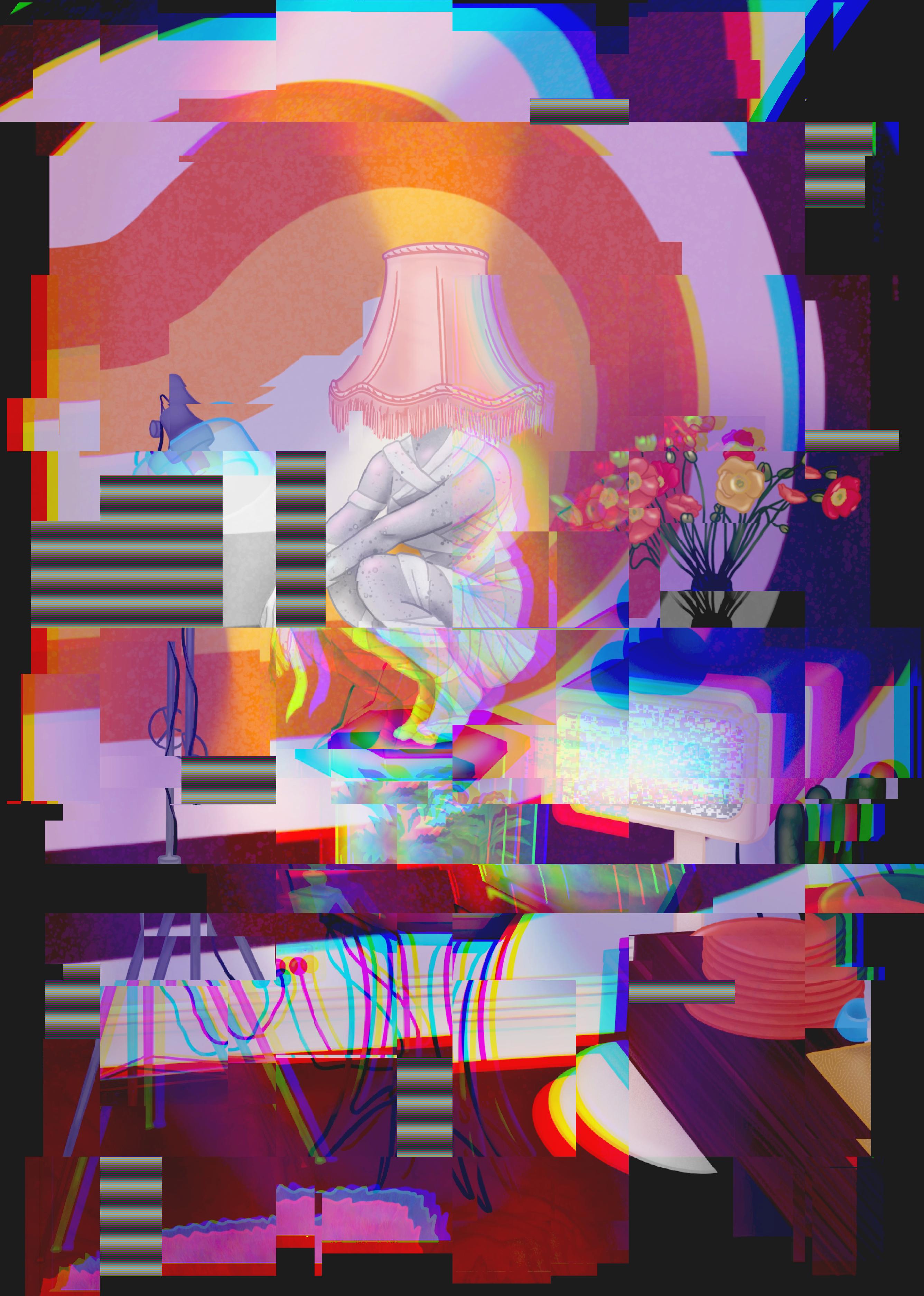
I thought I loved all the icky All the sticky, All the dicky.
Hold on, I still love the dicky. But then I stayed with children.
I thought I loved all the mushy All the splooshy All the tushie
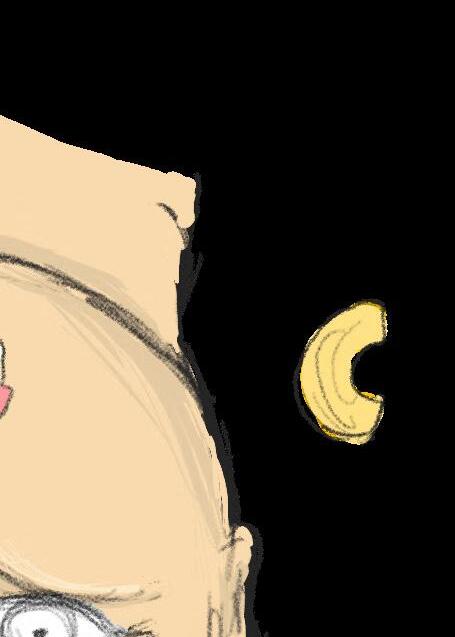



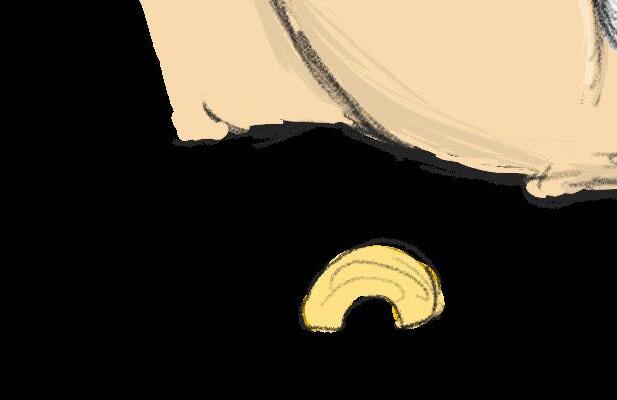
Hold on, I still love the tushie. But then I stayed with children.
Never had I ever been Grossed out by gross than when I’d seen A baby smoosh pasta betwixt their toes While dribbling boogers from their nose. I thought I loved all the gross But then I stayed with children.
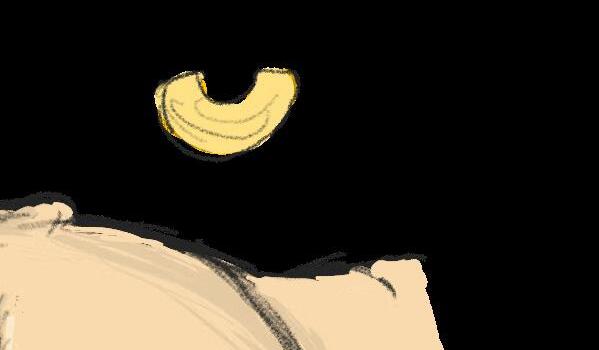


A lot of the advice I’m about to give you is pretty self explanatory. Despite this, I am an idiot, and didn’t realise how to be a functioning university student until halfway through my final year. Good luck to you all, and may you be more successful than me in keeping yourself sane.
I did not get an access plan in undergrad even though I was eligible for one, and this was a huge mistake. If you are someone that has a disability, physical or mental health issues, you may be eligible for an access plan. With one of these bad boys you will be able to extend assignment deadlines when you need to: for example, if you’re having a flare-up, trouble with the content, or a bad week. This is your right. You may never need to use your access plan, but it’s great to have as a safety blanket.
I know, it’s yuck. I realised this simple fact too late into my undergraduate degree. The lecturers put them there for a reason, and usually they can be used in assignments during the semester as references. I started writing notes for each course reading with key quotes and making them into a reference list. This saved my ass when it came to writing essays. It hurts, but it’s worth it.


You don’t need to go out and force friendships with pillow fights and sleepovers, but it does help to know who you’re working with. Your kindness will go far. Having a familiar face to sit next to makes class a little less daunting, even if you don’t become best friends and hang out when the lesson ends.
Struggling to make friends? Joining a club is a great way to start getting in volved in the university culture. I never made many university friends until I started writing for On Dit, and then I found these beautiful people who had the same passions as I do (sly promo). There’s a club for everyone, no matter what your interests.
This is extremely disgusting. I’m appalled that I even typed this out. You should do this. I do not. One time, I did this and it was helpful. That was for my last ever undergrad assignment. You live and you learn.
You will know in the first couple semesters how much you can handle in terms of subjects and other responsibilities. If you discover you can’t do four subjects at a time, that is okay. Try doing three. If you still want to graduate on time, you can take up a course over summer or winter school. If you find you need more time, uni can go on hold for a semester. Talk to someone from your faculty and see what your options are.
Putting all your assignment dates in a calendar at the beginning of the semester really does set you up for success. Knowing when your quizzes are due, when you need to submit work and when you need to be freaking out is crucial (especially if you plan your period around this like I do lol). I like to keep track of important dates that can be found on the UofA website, like the census date and withdraw no fail date in case of emergencies. Making a planner look pretty also helps boost morale, and assists the successful uni student fantasy.

You do not have to be here. Uni does not guarantee success (it doesn’t even guarantee a job anymore lol). If you hate it, you can leave. If you want to change a course, do not hesitate because you will be paying for whatever you don’t drop before the census date and we certainly do not want more student debt than necessary.
Uni isn’t all that bad all of the time. Get advice where you can and if you can’t find any you’re always welcome to bother me. I won’t pretend to know everything, but I will definitely try and help if I can. I came to uni with no idea what I was doing and thinking that I had to do it alone. That is not the case. Get the help you’re entitled to and take a break if it gets too much. I’m barracking for you.

My cheek on the devil’s shoulder, we sway, a bodiless waltz on a solace precipice sworn by lips unmoving.
I savour the vertigo. Those eyelashes promise the divine do spare some eternity. Allow me one saccharine breath - I will surrender water. And Dante knew this, didn’t he? Lips in my ear, he whispers sins I have yet to commit.
I am here to do his work.
Drink the red between my teeth, it will not dry.
I swallow the sick no longer, let it stain.
There is no contract signed in my blood and yet
you are burning me alive. My cheek on the devil’s shoulder, I ask if this solace precipice is damnation.
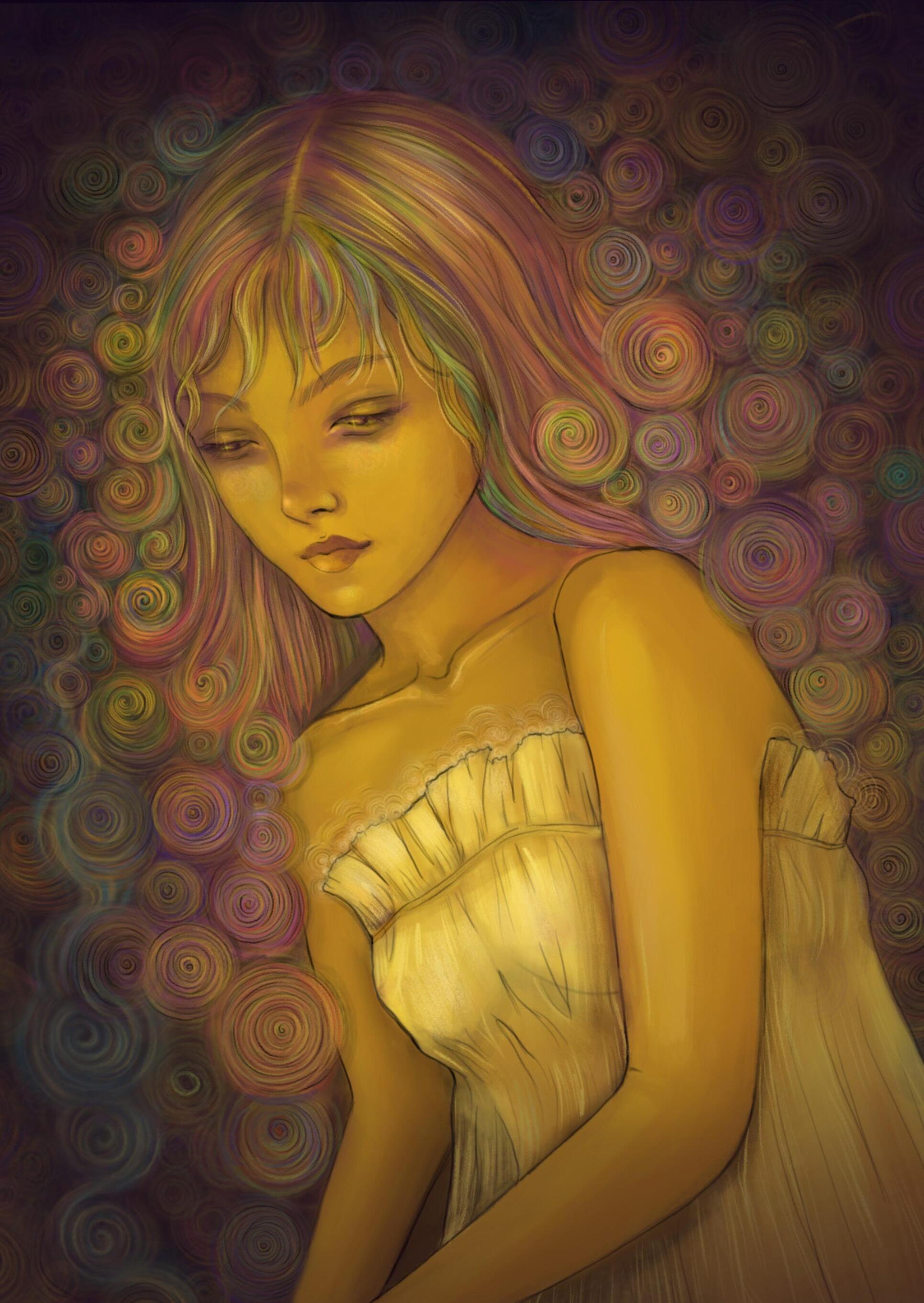
My name is Talara and I am a proud Narungga and Ngarrindjeri woman living on Kaurna land.
My mum is a strong Blak woman who raised me to call out injustice and always stand up for what’s right. It is her strength that motivated me to pursue journalism.
As a journalist, you are taught to be objective, balanced and fair, which I strive to be.
When it comes to issues impacting my community it is hard to stay silent. The celebration of January 26 is something I have never agreed with morally.
For me and other First Nations people, January 26 has always been “Survival Day”. Regardless of what people may say, it is still a day of survival, as, despite the attempts of colonists to get rid of us, we continue to survive.
January 26 is a day of mourning for First Nations people in Australia. It marks the beginning of genocide, massacres, and dispossession.
On this day, I grieve the pain endured by my ancestors: a pain that we continue to carry.
On this day, I grieve the theft of land, language, and freedom wrongfully taken from our people.
On this day, I grieve our warriors that died defending our peoples throughout the Frontier Wars (1788-1939).
On this day, I grieve the Blak lives lost in police/state custody, and victims of vile acts of racism. I will continue to grieve each of these losses throughout my lifetime.
A lot of non-Indigenous people argue that we should “get over it” because “it was a long time ago”.
When you tell us to “get over it”, you’re telling us to forget the history that has changed the lives of Indigenous people in this country forever.
234 years on and Indigenous people still feel the impacts of intergenerational trauma to this day.
As a teenager in the 90s, my mum was treated like a second-class citizen: she wasn’t even allowed to enter the houses of her friends simply for being Blak.
My grandmother had to hide in riverbeds during the Stolen Generation era to avoid being ripped from the arms of her family.
My heart breaks whenever I think of the fear and pain they endured: this is exacerbated every time I hear the news of another death in custody, racist attack, or Blak life stolen.
In 2023, Indigenous people are still significantly disadvantaged, having a shorter life expectancy, poorer health, education, and employment outcomes, and disproportionately higher incarceration rates compared to non-Indigenous Australians.
Indigenous people have long been calling for the date of “Australia Day” to be changed dating back to the first Invasion Day protest in 1988.
It wasn’t until 1994 that each state agreed to celebrate on January 26 and prior to this they held their own celebrations marking the foundations of their respective colonies.
If we can have a date to celebrate the diversity of Australia that is inclusive of both Indigenous and non-Indigenous Australians, what is there to lose?
As hard as it can be to confront our shared history, it is important that it is acknowledged and that First Nations people are respected, valued, and heard.
This Survival Day, I encourage you to listen to First Nations voices and make an effort to learn, reflect and support your local First Nations community.
Next month, South Australia will have a state Indigenous Voice to Parliament introduced and a referendum to recognise Indigenous people in the constitution will be held later this year.
There is still more work needed to be done to improve outcomes for Indigenous people in Australia, and I believe changing the date will be a step in the right direction towards reconciliation.
This land always was and always will be Aboriginal land.
This land always was and always will be Aboriginal land.
This land always was and always will be Aboriginal land.
Some were delighted, others outraged, but most were just confused in the wake. On the 6th of November 2020, a sculpture was unveiled in Rundle Mall, joining the likes of the shiny Malls Balls and bronze pigs. Towering over shoppers, a beady-eyed geometric pigeon stands proudly. He cannot be missed.
People confronted by the sight of the oversized bird flocked to social media, minds full with questions. Who? What? When? Where? Why? Why was the local council giving no answers? Is there no transparency? Was this pigeon actually full of an army planning to descend on the unsuspecting patrons at Rundle Mall?
Rest assured, we are here with some answers.
‘Pigeon’ is a statue sculpted by artist Paul Sloan. Born in Belfast, Ireland, he immigrated to South Australia in the early 1970s. He has undertaken residencies in China and Finland and practices a wide range of art forms — from painting to photography. His experiences abroad and as an immigrant shine in his works such as the ‘Pigeon’ — as the homing pigeon is a canonical symbol of migration.
No matter the medium, Sloan’s works also reveal a keen eye for animal life and a commentary on the relationship between the natural and industrial world. Works before ‘Pigeon’ include ‘Animal Kingdom’, a collection of pets in painted grayscale, and ‘Interior Motives’, a 3-D printed network of spiders and webs. Despite his impressive background, ‘Pigeon’ represents a turn for Sloan, as it is his first installation outside a gallery.
‘Pigeon’ is a mirrored-surface sculpture of a homing pigeon which creator Sloan claims to be the first of its kind — that being a “large-scale, permanent public artwork of the internationally omnipresent bird.” Costing a whopping $174,000, Rundle Mall’s feathered friend weighs in at an unknown tonnage and measures over 2 meters tall. And what’s inside? In the words of Advertiser real estate editor Tom Bowden “it’s not even made of pigeon - it’s metal.” Stainless steel to be precise.
Unveiled in November of 2020, Adelaide’s newest metallic resident was released into Australia’s COVID zenith like a pigeon released into bracing city air. With the SA Centre for Economic Studies forecasting grim unemployment figures and dismal economic output for 2021, this plucky, but not plucked, avian stimulus package was exactly the shot in the arm Adelaide needed.
The Pigeon’s place of residence is Southern Gawler Place, perched next to the Nespresso Boutique. It is exhibited 100 metres away from the pigs, to avoid any unsavoury animalistic interactions. On its leg is a golden band, engraved with the exact GPS coordinates of its present location.
Sloan was commissioned by the City council to build this statue as part of the City of Adelaide’s Gawler Place upgrade. After the installation was complete, the Lord Mayor of Adelaide, Sandy Verschoor, testified that it would be a drawcard for Adelaideans, claiming “This exciting piece of public art will build on the existing legacy of public art across the city and will add to Adelaide’s reputation as a place of culture, creativity and innovation.”
The Pigeon’s arrival was similarly welcomed by Rundle Mall Management, who were excited to be at the centre of a feathery scandal. Rundle Mall Management Authority General Manager, Johanna Williams, hypothesised that ‘Pigeon’ would be a “destination in itself” which would then encourage shopping at Rundle Mall.
But why did Paul Sloan choose a pigeon, many ponder? Why overlook graceful symbols such as calm cygnets and dutiful doves? One only needs to think of Rundle Mall’s other iconic fixtures, such as pigs rifling through garbage bins, for the answer. ‘Pigeon’s’ geometric composition is artful, imbuing it with grace, yet it serves as an homage to an omnipresent, criticised but loyal creature. Sloan pictures pigeons with less disdain than most, and hopes to communicate his adoration in his art — “I see pigeons as proud flaneurs, promenading through our leisure and retail precincts. They are the quiet witnesses of our day-today activities in the city, our observers from day through to night,”, he states.
Although some keen birdwatchers may flock to Rundle Mall with the pigeon as their destination, Rundle Mall continues to mostly attract shoppers who are disgruntled by the pigeon’s existence. This anger stems somewhat from contempt for the bird itself, but mostly from confusion at the pigeon’s sudden appearance. Once you delve into the meaning behind its presence, and fully appreciate how it fits into a legion of Rundle Mall sculptures, it takes a real Scrooge to frown at the quirky sight. 49
It’s been six years since you returned home after battling on the front lines of the Vietnam War. The state is progressing under a ‘pink-shorts’ Labor leader ship, with voices calling for the decriminalisation of male homosexuality and the recognition of First Nations’ land rights. In two years, a conservative doomsayer, dismayed at the leftist attitude from what was traditionally a right-wing city of churches, will predict the city’s end: an earthquake, followed by a tsunami, will wash the sinners away – a prediction met with hilarity from the locals, but panic from the migrants you call New Australians.
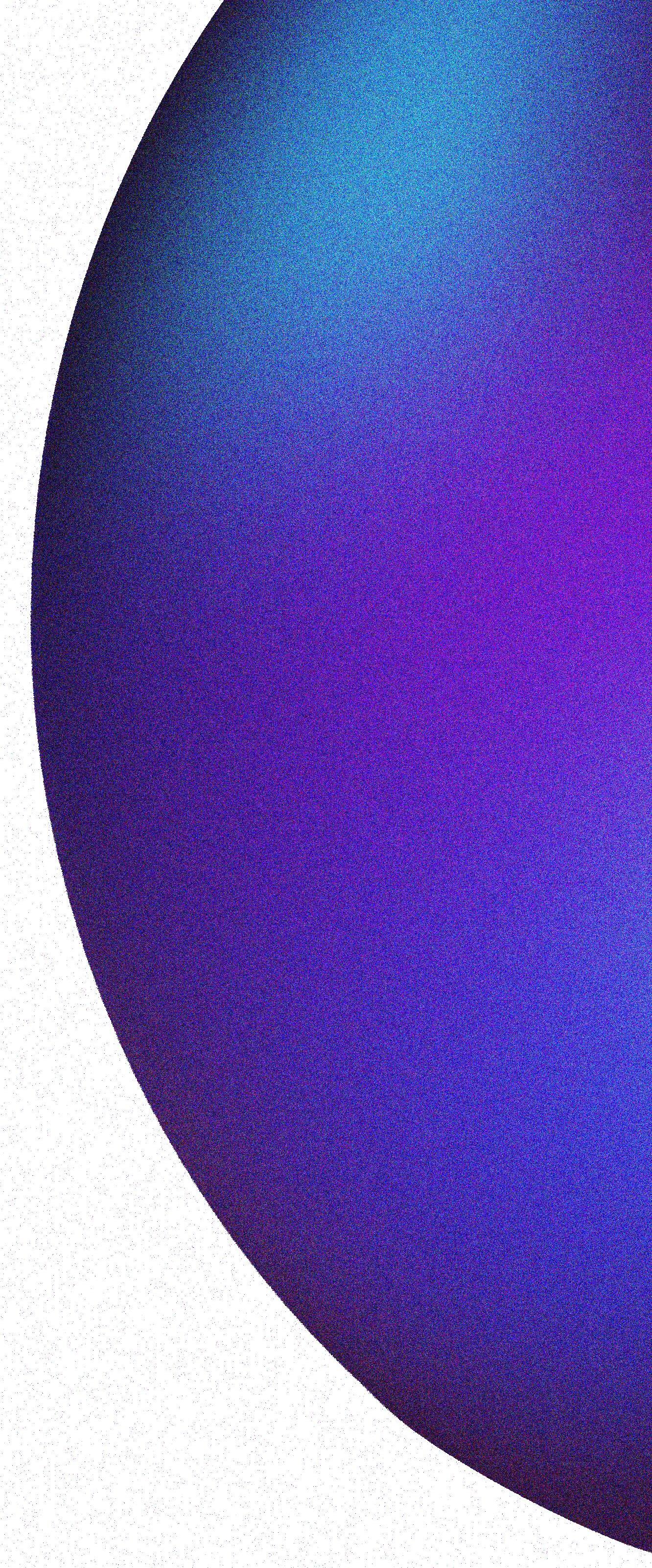
Your watch silently signals the lunch hour of a career you hate. Today, you’re working alongside a mate you met on the job, both of you ex-service men – you, the army: he, the navy. The suburb your societal-enforced capitalistic pursuit of money has brought you to has a pub your mate frequents – naturally, you decide to go there.
The stench of colonial history hovers just out of your sight as you walk through the doors of the elaborate red bricked building – these issues were yet to come to the forefront of public concern. The haze of cigarette smoke is there, al though not as thick as other venues: the owner works hard to make it an open and welcoming area.
Before the scent of second-hand cigarette smoke can hit you, you are met at the doors by a disgruntled man. “There’s two blokes in there.” he tells your mate. “They’ve been hustling us all morning.” Your friend barely nods in acknowledgement, and you continue into the pub. It doesn’t take long for you to be targeted. Your mate indicates you should play. “I’m the world’s worst at this, there’s no point in asking me for a game.” you tell your mate.
“No, you’ll win. They’ll let you win, so just do it, alright?” Alright.

Just as your mate predicted, you win. Bets are doubled. At some point between the second and third game, your mate disappears to the bar, returning with a beer. You described his demeanour as cool, calm, and oh so sophisticated.
After the third game or so, one of the hustlers turns to your mate and asks, “Would you be interested in playing doubles?”
Taking a long sip of his draught, your mate says, “How much?”
“Why don’t we start off at about $100? Your friend here has beaten us about three or four times already.”
All in agreement, you play the game, and you lose. You know your mate has something planned, so you don’t question his very average gameplay that round.
It’s getting close to the end of your lunch break, so your mate says, “Look, we don’t have much time, why don’t we put it all on? I’ve $1000 here.”
The hustlers rustle slightly in their excitement. “We can match that,” they reply.

It’s their shot first. Standing at one end of the table, concentration zoning in on the cue ball with their long hair draping over their shoulders, their friend waiting not far behind, were the hustlers: their hair is screening their peripherals as, casually attired in their double denim, they keep true to the hippy fashion of the Seventies. They take their shot. In comparison, awaiting your turn, stands you and your mate, both of middling height, short brown hair, and dressed for work. You believed your uniform worked for you this day, saying, because it was the company we worked for, we had to dress like the company’s executives. Even though we were the crap on the floor, we had to wear collar and tie and jacket or suit. They must have thought we looked like a couple of patsies when we walked in.
They break the rack and... that was it. Your mate takes his shot, and takes another, until the table is completely cleared. The pool cue was never handed to you. Turns out, he used to play pool while stationed on ships in the Navy. As he put it to you when you asked later, when you’re on the ship, the pool balls weren’t naturally still, so we had to learn how to move around with them. This skill had him playing against state champions.
The hustlers are not impressed.
“You’re a bloody hustler!” One accuses, refusing to pay up: the irony apparently missing him by a pot’s span.
The watching patrons of the pub don’t miss it. An angry circle of twenty-odd men quickly forms, with the hustlers in the centre, like a number 11 billiard ball. It becomes apparent that they will be paying up, one way or the other. After handing the money over, they leave the pub, followed by a resounding “Piss Off”. For good.
Taking the winnings, your mate returns half to the owner. Turns out your mate, trusted by the owner to win the game, had borrowed it whilst buying his beer. Returning to you, he hands over $500.
You say, “What’s that for?”

He says, “It’s your share.”
“But I didn’t do anything?”
“You let them suck you in, so they thought that I would be the same level as you and they would clean up. You earned it.”
Easiest $500 I ever made, you told me, fifty odd years later.
From January 8th, quarantining is no longer mandated for travellers entering China. This is also the first time that the country has opened its border since it was closed in 2020. Many Chinese overseas expressed their excitement at finally being able to return home. Yet, the rest of the world was mystified that China had not opened up until now.
Most countries, including Australia, have phased out their COVID restrictions since mid 2021 or early 2022. China delayed this process by an entire year only to remove everything in the time span of less than a month. To many, this abrupt end was just as perplexing as the lockdowns themselves. This article seeks to address the reasons behind such policy changes.
Most countries experienced a period of lockdowns during the pandemic, which many viewed as a disruption to their lives. China was arguably one of the countries with harsher restrictions overall. The policies also vary within the country over different time periods. Major cities including Beijing and Shanghai enjoyed a relatively normal life before the spread of the Omicron variant, while Ruili, a small city in Yunnan province, endured over two-hundred days of lockdowns, which was detrimental to local economy and residents’ wellbeing. During the lockdowns, residents had very limited access to schools and hospitals. Sometimes, even essential resources such as food and water were scarce, which was observed in the three-month-long lockdown in Shanghai last year.
The relationship between Australia and China had been undermined under the previous Morrison government, due to a range of political disagreements. This discordance has triggered a transition in the Australian economy, leading to a lesser degree of dependence on the Chinese market. However, as the second largest economy in the world, China still plays an imperative role when it comes to business, which is why there is still a necessity in keeping informed about what is going on in the country.
Penny Wong’s visit to China in December 2022 signals a change regarding the bilateral relationship between the two countries,with both sides seemingly seeking to make amends. With China opening up, we may expect to see an increased level of engagement moving forward.
Why are Chinese cities trapped in a lockdown loop, rather than optioning to adapt to the variant? Other than the population density, one main factor is, unsurprisingly, politics. From the beginning of the pandemic, China had aimed to eliminate the presence of COVID in the country. This strategy, albeit coming at a great cost, was understandable before the Omicron outbreak. However, when Omicron hit, the country failed to switch to more effective measures and instead held on to its zero-COVID solution. Rather than preparation, the emphasis was on control. Thus, instead of increasing the rate of vaccination and producing more medicines, China merely increased the frequency of PCR testing, mandating many to take the test on a daily basis. When it comes to vaccination, China has refused to import mRNA vaccines such as Pfizer, citing safety as the reason, and chose to apply inactivated vaccines instead. The effectiveness of these vaccines is often questioned. Low vaccination rates and limited medical resources factors left China vulnerable to Omicron when opening up became inevitable.
When the zero-COVID policy was axed at the end of 2022, massive outbreaks occurred across China, leading to the loss of many lives. What had caused such a drastic change in the country’s approach was, in short, economic concerns. In 2022, China experienced a slowdown in economy, with a GDP growth of 3%. The increase in poverty, bankruptcy and unemployment reflected this poor economic performance, causing disturbance to brew. On November 24, 2022, a fire killed ten residents in Urumqi, Xinjiang, one of the cities with the harshest restrictions. Despite lockdown constraints hindering rescue efforts, local authorities have shifted the blame instead on victims. Frustrated and furious, residents of Urumqi swarmed the streets to protest against zero-COVID, inspiring the outbreak of protests across the country. Restrictions were removed in the following weeks in response to the public demonstration of outrage. But the people were not prepared to deal with such drastic changes. The zero-COVID policy had limited access to essential medication including Ibuprofen and Paracetamol, while insufficient vaccination rates left the population defenceless against the virus. After restrictions were lifted, increased demand for medicine and ‘panic buying’ caused supply shortages. Spikes in infections and resulting illness placed strains on hospitals. Cries for help filled the internet from desperate people at their wits end.
The situation only mellowed out as the first wave of Omicron in China showed signs of dwindling, but the future remains unpredictable. Because of the outbreak, countries including the United States, Japan, and Italy now demand that Chinese travellers present negative test results upon entry, but Australia is yet to join the list. Due to the Chinese foreign ministry’s aversion to such demands, it is possible that the Australian government is unwilling to risk jeopardising their recently-patched relationship with China.
B
arry groaned and sat up, a hand rising to press against his pounding head. The world was spinning and his stomach lurched. Taking deep breaths to soothe the nausea, he waited until the worst had subsided, then looked around.
What the hell just happened?
Crawling his way over to the nearby river, he took a moment to rest. Kneeling on the edge, he gazed at his reflection in the water, and boy, did it tell a story.
Man, I look wretched.
With his shorts ripped to shreds and his shirt not far behind, not to mention the stench of smoke from his singed hair and shoes, anyone would think he’d run through a burning building. He splashed some water onto his face, jumping when a hand clamped around his shoulder. He wobbled precariously, but the stranger steadied him.
"I wouldn’t fall into the river if I were you," the stranger advised. "All manner of nasty creatures reside within."
Barry eyed the river, and was thankful nothing had decided to nibble his fingers in their brief dip. He looked up, his worried expression turning into curiosity as he took in the odd dress sense of the three strangers. They were wearing skin-tight latex with an overlay of fabric, resembling a tunic. It seemed an entirely inappropriate design given the temperature had to be close to thirty-five degrees. One of them even had a fancy beaded hat.
"Um, thanks for warning me." Barry paused for a second. "Also, where am I?"
"You’re welcome. We are just outside the border of our Kingdom, Akhane." Fancy-hat said. "I am known as Hathor, and these are two of my colleagues. We've been expecting your arrival for some time, Bartholomew."
Colleagues? Dressed like that?
"Yeah um, Barry's fine. How do you know me? And, how do you know my full name?"
"As I said, we've been expecting you. We're in dire need of help. After we received your offer of employment, we pulled you across the void and into our world. Naturally, you may return home after fulfilling your contract."
My offer of employment? Did I contact them somehow? I don’t remember seeing them on SEEK or LinkedIn. Oh, I hate companies that are just initials You forget what they stand for! Wait… did they say they pulled me into their world?
Barry pressed a hand to his temple. “Okay, hang on. So, this is your world, not mine?”
“Indeed. The sooner you aid us, the sooner you may leave.”
“You’re holding me against my will?” He demanded. “If I miss work, I’ll get fired!”
What about all the rent I just paid? And my groceries will spoil! Oh God, everyone’s going to think I was kidnapped! Well, he was kidnapped. It also appeared he had exactly one choice. “Alright, fine.” He muttered. “What’s the issue?”
Hathor smiled benignly at him, ushering him upstream towards a well-hidden door in the approaching stone walls - the border of the kingdom. The journey was made in awkward silence - at least, it was to Barry. Most likely because he wasn’t wearing pants. He was escorted inside, squinting into the darkness. They took a thousand corridors, and Barry was immediately lost. Up and down, right and left. The disorientation seemed intentional, though he tried not to take it personally. Eventually they came to a lab. Inside, a myriad of creatures were being studied, many residing in a range of terrariums. Shelves were lined with jars, and he glimpsed some of the labels. Hairen feathers. Gorsol sap. Neetle fangs. It all looked, so impossible and unfamiliar.
How can I be of any help here?
“What exactly do you guys do here?” Seemed the only logical question. “We work for a subsection of the government. In our mission we have exhausted our theoretical resources and thus require skills from beyond it. Only then might we achieve our goal to destroy the monster terrorising us.”
“And that’s where I come in?” Barry asked as they stepped into a final room, the door sealing shut behind them.
Hathor nodded. “There resides, inside the nearby mountains, a beast of untold power. It is called Akhapost. We have cohabitated for centuries in a feeble truce where it leaves us alone so long as each month we sacrifice one of our own to it.”
This is seriously messed up. No wonder they desperately want help.
“We have tried everything to subdue, kill, or threaten it, but all have failed.” Hathor continued. “Magic can do many things - things even we once thought were impossible. However, Akhapost is filled with magic of its own, and anything we do only makes it stronger.”
“Hold up, you said magic, didn’t you? Magic isn’t real!”
Harthor looked at him pityingly. “How else do you think we brought you here, Bartholomew? Our worlds differ in this one distinct way. Here, we have magic, but you have something we do not. You call it ‘syensee’, I believe.”
“You mean science?”
Hathor snapped his fingers. “That’s it! And your application claims that you have significant experience in this ‘science’.”
“Hold up, you have magic but don’t have science?” Barry demanded incredulously. “Not even basic biology or chemistry?”
“I’ll ignore the insult your words imply and get to the point. We only ask that you obtain a basic understanding of our world, and then assist in our ultimate goal; combine magic and science to destroy Akhapost.”
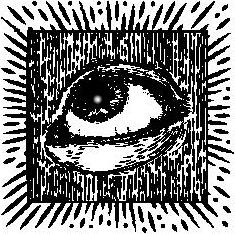

“Woah, woah, I don’t like the sound of where this is going.”
“You will attend our university and take the classes we assign. All tuition is paid for. Your spare time will be devoted to helping us develop the weapon we require.”
“Weapon!?”
“And when the monster has been killed, we will take you home.”
This is going to take ages: I don’t even know what I’m supposed to make, let alone all of these strange machines I have never heard of - and no team!
“We have also organised your accommodation.” Hathor said, leading him out and escorting him to what appeared to be the front of the building, to some local form of transport. “I’ll see you in a week, Bartholomew, and naturally, don’t tell anyone of your situation.”
Barry didn’t get a chance to respond as he was manhandled onto what must have been a teleportation platform, as he was ripped apart and shoved back together in a scientifically impossible way, into a new location.
“Hello!” An entirely too cheery voice called out to him, and Barry turned to find its owner, resignment and dread filling him with their next words. “You must be Barry, yes? I’m Random, and I’ll be your student guide!”
1. What is the capital of Peru?
2. What is Barbie’s full name?
3. How many feet are in a yard?
4. What symbol does Waluigi have on his hat?
5. Name one of the five Great Lakes of America.
6. In Greek mythology, who was the twin brother of Artemis?
7. What does the speaker and electronics brand known as ‘UE’ actually stand for?
8. What is the french name for a meat and cheese board? Bonus point for correct spelling.
9. What sign follows Scorpio in the zodiac?
10. What is the space between the nose and upper lip called?
11. Finish the famous cartoon character’s catchphrase: ‘Bite my _____ _____ ___’
12. What does deciduous mean?
13. How old was Elvis Presley when he passed?
14. Clerical collars are worn by whom?
15. Ben Stiller, Owen Wilson and Robin Williams feature in this 2006 film.
16. What colour are the letters ‘Fed’ in the FedEx logo?

17. In what decade was The Battle of Stalingrad?
18. What does CPU stand for?
19. What is known as the powerhouse of the cell?
20. Smash or pass: Pierce Brosnan?
Answers on page 66
Falling into the dark academia rabbit hole back in 2020, I’ve done my fair share of reading books about people who are in university. Some of them insufferable, some of them murderers and while they were an enjoyable read, none of them left an impression on me quite like Normal People did.
It could’ve been the line “I’m not a religious person but I do sometimes think God made me for you”, or maybe it was the various fan edits of Connell and Marianne to a Mitski song that dragged me to Dymocks for a copy of the book back in 2021. I wasn’t so sure, but I do remember buying the book thinking it would be a light and fun read to cradle me through my second year of law school and lockdowns. And it did, but for a different reason.
From the way Rooney illustrates the frustrations of not meeting your expectations to the struggles of connecting with others and imposter syndrome. This book, I felt, served as a realistic (and jarringly relatable) depiction of the ‘university experience’ for out-of-town – or in my case, international – students through its central character, Connell Waldron.
While he may not have travelled as far as I did coming from Carricklea to Dublin, it is still an alienating experience being plucked from your hometown and moving to a new city, one where everyone seems to know everyone but you. That (having to insert yourself into someone else’s bubble) is already a huge challenge for international students.
I felt for Connell in the counselling scene when he talked about his struggle ‘clicking’ with other people. That it wasn’t something new to him, rather a familiar ache worsened because he is now alone and has to make friends in a completely different setting to that in high school.
I’ve always felt like high school friendships come by a lot easier because more often than not you’ll see the same rotation of people every day and psychologically, bonds are created through consistency. I learnt you don’t get that as much in uni. Your friends have other friends whom they’ve shared a relationship with since childhood, and jobs and if they’re local, they have families to go home to as well, so it’s unsurprising that genuine connections are few and far between when you only get 3 hours a week with someone.
As if that’s not enough, let’s throw in a tinge of introversion and an awkward/ shy personality to the mix too.
While his days spent alone at the library were gut wrenchingly relatable, Connell’s tussle with imposter syndrome was probably the most hard-hitting plot point for me. I understood what it was like to transition from having everything go your way (academically) to feeling the grasps of insecurity tighten around you as you watch your classmates express their views and opinions so confidently while you’re wrecking your brain trying to think of a simple response. It may seem minuscule to the third person, but that tiny failure really makes you question your place in the classroom and to have it confirmed by other slightly bigger failures, like when Connell’s first article got rejected by his uni paper, is just painful. If I had a dollar for every time I wondered how in the world I managed to get into law school because legal concepts and rules just don’t make sense to me as quickly as they do to my peers, I’d be rich enough to own a firm.
Reading Normal People helped me feel comfortable sitting with the isolating experience I had as an international student. It was like someone held up a mirror to my circumstances and forced me to acknowledge it through beautifully written prose and heart-breaking characters. Reading about it – and liking it –was almost like a confession; an admission of the very things I would have been so embarrassed to tell anyone because then that would make it real. But it was real – there I was struggling to ‘click’ with others, questioning my academic worth, and my study abroad experience not turning out the way I had thought it would and yet, I still had my good moments. Thanks to Connell, I felt seen and in some ways, normal.
September 16th, 2020, I watched as something took over my body, controlled as I looked on from afar. A familiar being, yet, an Imposter, became me. They stumbled my body from bus to street, street to campus, and into campus bathroom. The door swung open, the imposter sat, wearing my skin, not caring who else was there. They grasped through my possessions for keys, and chain, searching for the tiny pocket knife, yet finding none.
Sudden, sickening, rushing self: I was there again my body foreign, tainted, mistreated, violated by a spirit that lingered there at the nape of my neck, a nauseating pressure that grew from silence to booming bass and drums.
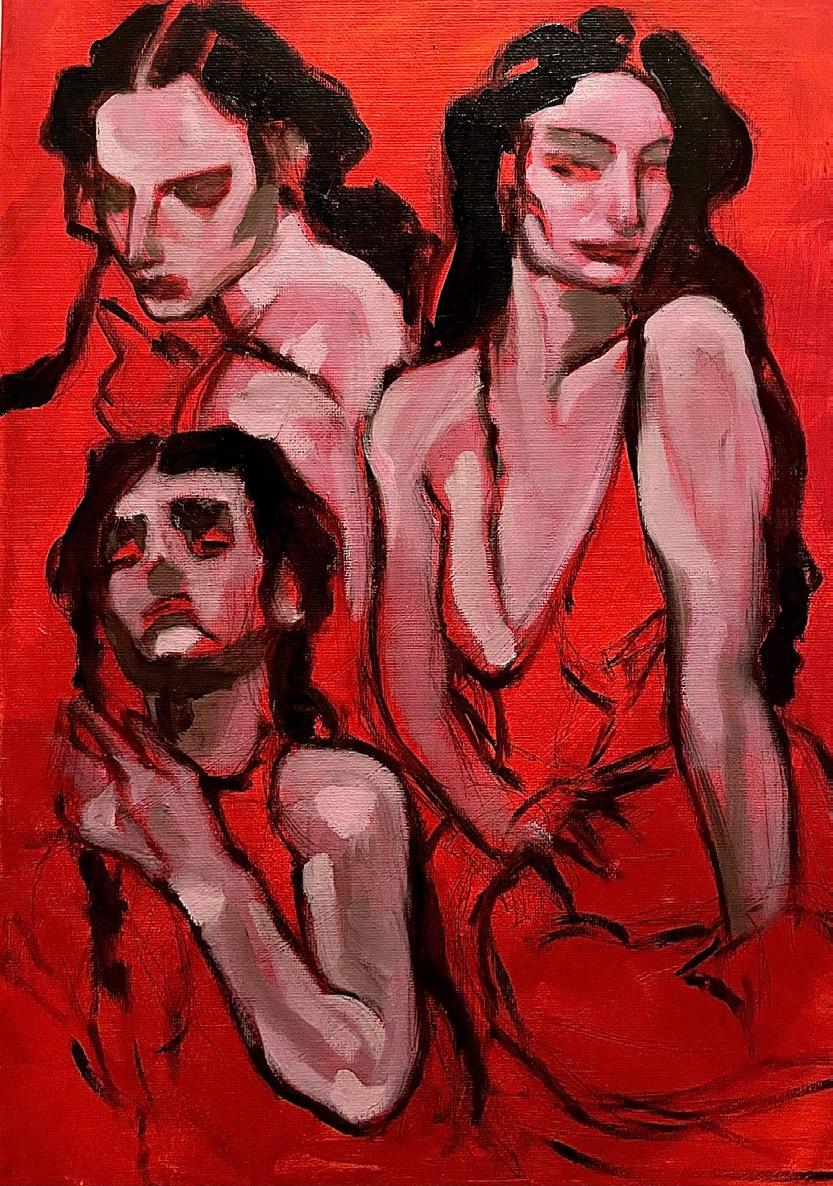
How hadn’t I seen it there before? Or had I, and let it fester? Did I know and let it grow? For illness was weakness and weakness was acknowledging that I allowed this creature in: a Babadook clasping its long fingers and cold palms around my spine sinking its blackened nails deeper with each self-pitying thought. Did I fill myself up with stones of ice? Slowly weighing myself down until my knees shook and buckled and I couldn’t drag myself up again.
But here I stand now, belly empty, back bruised, neck lighter, just me, alone, unoccupied. In the end there was no shame to slip that pill glazed in sweet icing –contain it but see it allowing trusted few into my zoo with enclosures for this creature so they can watch it when I’m tired: that little me, that lesser me. My body truly mine. No one else’s. At least for the time being or, perhaps, forever.
Annabel FedcesinBlood streams down your face on a sweltering day, salty dark ribbons returning home through a panting mouth, as sweat breaches your brow to sting a pair of squinting eyes. You look a mess, but you’re still alive.
O, to drown out the clatter of every monstrous thought and return to stillness, to that summer day up north. Far from inert, my tiny legs spinning lonesome on an inching pedal train.

That first summer, floundering in the river, cool gasoline washing away unsaid words we left hanging in the air. We went under, chests empty, breath held in our fists. That temptation to let go, praying to no god that we might drown. When I surfaced, heaving, you lingered beneath, scrambling for those volatile words, long swept away. But only time found them, in the hollows of our silence as we desiccated in the sun, consciousness forgotten. The air was close that day, Clinging tightly to us like napalm memories, incendiary and persistent.
Alex DidukAs someone who spends too much time on their phone, I made the decision to read more books in 2023. So, naturally, I started the year with a book about being online. Reward System is Jem Calder’s first published collection of fiction. It speaks to the malaise of our increasingly blended offline/online lived experiences through its portraits of millennials stumbling through relationships, work, dating, and, more generally, efforts for connection and meaning making. Calder’s stories capture our present tech-mediated lives in a manner unlike most new fiction. The title of the third story, “Distraction from Sadness Is Not the Same Thing as Happiness,” is a fitting adage for the collection as a whole. Calder’s writing is described as ‘ultra-contemporary’ and has received a glowing recommendation from writer Sally Rooney, author of Normal People, who found herself ‘thinking newly and differently about contemporary life’ after reading Calder’s stories. While both authors paint a sharp portrait of millennials, Calder’s writing strikes the reader as particularly attuned to our communication patterns and the way long-term use of social media has conditioned our thinking. These unconscious patterns of anticipation and gratification are the ‘reward systems’ Calder refers to in his collection’s title. As unfolds in the final story “The Foreseeable”, these reward systems create a familiar dilemma expressed in the aftermath of a zoom meeting between exes during a pandemic:
I rolled over onto my side; my smartphone sliding off my chest and landing face-down on the bed beside me. Despite having just finished using it, I felt an urge to turn over and consult the device – an urge I’d always previously yielded to within moments of its having arisen. Consciously devoting my attention to the act, I breathed in and out; breathed in and out.
Calder excels in capturing the minutiae of these reward systems, drawing out the moments when the seamlessness of touch to tech breaks for just a moment and we see our habits laid bare. His stories are filled with the familiar yet uncanny, like that strange reverse déjà vu when you hover your finger over an app, stopping just short of tapping, trying to remember why you scrolled to it in the first place.
“To Live and Be Connected is to Be Online: A Review of Jem Calder’s short story collection Reward
“To Live and Be Connected is to Be Online: A Review of Jem Calder’s short story collection
“To Live and Be Connected is to Be Online: A Review of Jem Calder’s short story collection Reward System”
Venetia Rigoni
There is also an insularity and intimacy to these stories. Despite each of the six stories being set in a large, unnamed anglophone city with characters crossing each other’s paths, we become minutely aware of the smaller worlds they move within, both physically and online. Calder shows the spaces that we create, or that are constructed for us, online – a private message chat, a dating app, a zoom exchange – and we see how the particularities of these spaces strain us, but also the lengths we go to carve out some form of connection – a connection often undermined by the very ways these online spaces are structured. Calder does well to show the poignancy of social misreadings and the particular shame and disappointment of realising the person on the other side is further away than initially thought. In “The Foreseeable” we ache for a character who realises that what he thought was a relationship rekindling with his ex over a series of zoom calls was more like an epilogue to their relationship – a final call goodbye. Calder asks if we then start to see people more as surfaces and interchangeable subscriptions we opt in and out of, seeing we spend so much time interacting on screens and online. In “Distraction from Sadness Is Not the Same Thing as Happiness”, we follow the arc of two dating app users from the moments of their initial algorithmically determined pairing till their inevitable slow drift out of each other’s sphere.
She re-iterated several times to herself her overall strategy for the date, which was to present to the male user an exaggeratedly carefree, pretty, lite-version of her real self; a person-shaped suite of attractive gestures and responses whose outline she could gradually, somewhere along the line, restock with elements of the personality she actually had.
In 2023 to live and be connected is to be online. Tech incentivises us to think and behave in certain ways, to pursue certain types of relationships, and to adopt particular ways of seeing the world. My experience of reading Reward System was one of slow horror and occasional recoil. All-too-familiar descriptions would take me back to similar events in my life, but their predictability often limited the nuance of the stories and characters. After the fourth of the six stories, this style became tedious and alienating. Calder’s stories highlight his character’s ever pressing loneliness and desperate attempts to connect. While we may be briefly gratified by the comforting reward loops of smartphone notifications or the gamified interfaces of dating apps, there are deeper and more meaningful ways of connecting. While tech can be a barrier to this, it does present possibilities for connection or closure which do not arise in our physical world, for better or worse. If anything, Reward System is about how hard it is to be yourself in a present that is increasingly optimised, algorithmically decided and incentivises snap recognition and surface readings. We are perhaps most human in those moments between the algorithms. Genuine connection happens in the margins we make outside the clean cropped borders of our online selves.
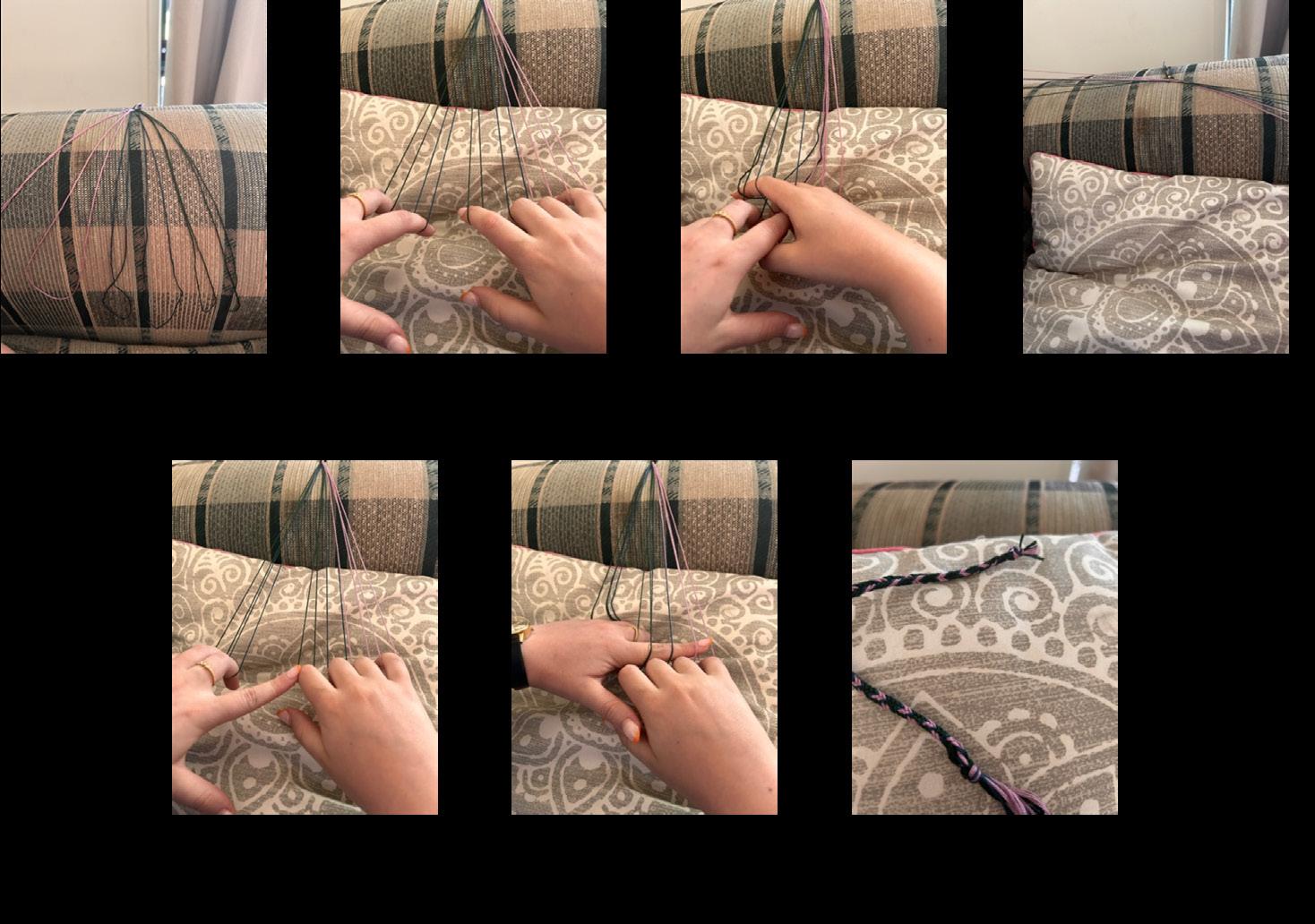

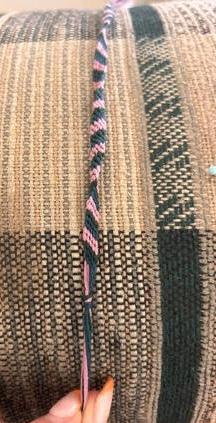
You will need

Six pieces of looped thread
Step one: Cut out six even threads, about double the length you wish the bracelet to be. Double them over and knot the top (the top should be without the loops)
Step two: Find a surface to stick the bracelet onto. I prefer using a cloth couch, but some heavy-duty masking tape and a heavy object should also do the trick. Lay out your loops and thread three fingers (ring, middle and pointer finger) from both hands into a loop.
Step three: Transfer your right three loops to your pinkie, ring, and middle finger. Your pointer finger then threads into your left hand’s loops (up, down, up, down) and grabs your left ring finger’s loop. Pull that loop through and tighten both sides. You should now have four threads on your right hand and two on your left.
Step four: Repeat the same with your left hand. Transfer, use pointer finger to grab the last thread on the opposite hand, and tighten after the loop is pulled through. Repeat on both hands until you are content with the bracelet’s length.

Step five: Once the bracelet’s length is as desired, make a knot about 1cm after the last braid. Make a hole in the bracelet and pull through the starting knot. Alternatively, you can affix it to your person’s wrist or ankle with a knot.
You will need Five pieces of embroidery thread (about 1 meter in length)
Step one: Knot your threads at the top of the bracelet and affix them to your surface. I would highly recommend using a couch or something you feel comfortable sticking pins into.
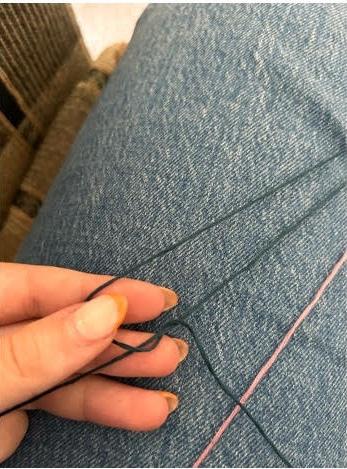
Step two: Spread out your threads into your pattern. Using a simple knot, knot the first thread to the second thread and pull up to the top. Repeat for all four other threads, until the first thread becomes the last knot in the line.
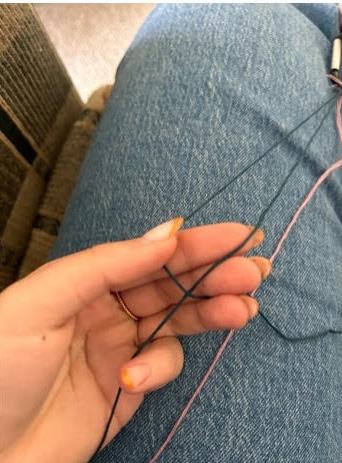
Step three: Repeat with all other threads. When the bracelet starts to curl, I like to put a second pin close to where you are currently knotting, moving it down every couple of rows.
Step four: Similar to the first bracelet, knot about 1cm from the end row, pull through the start of the bracelet and affix it to either you or your person.

onditmag@gmail.com
@onditmag
Sen’s Big Quiz Answers
1.Lima
2.Barbara Millicent Roberts
3.Three
4.An upside-down L
5.Superior, Huron, Michigan, Huron, Erie, Ontario
6.Apollo

7.Ultimate Ears
8.Charcuterie
9.Sagittarius
10.Philtrum
11.‘Bite my shiny metal ass’
12.To shed leaves annually, usually in reference to trees.
13.42
14.Priests
15.Night at the Museum
16.Purple
17.The 1940’s
18.Central Processing Unit
19.The Mitochondria
20.Smash (obviously)


